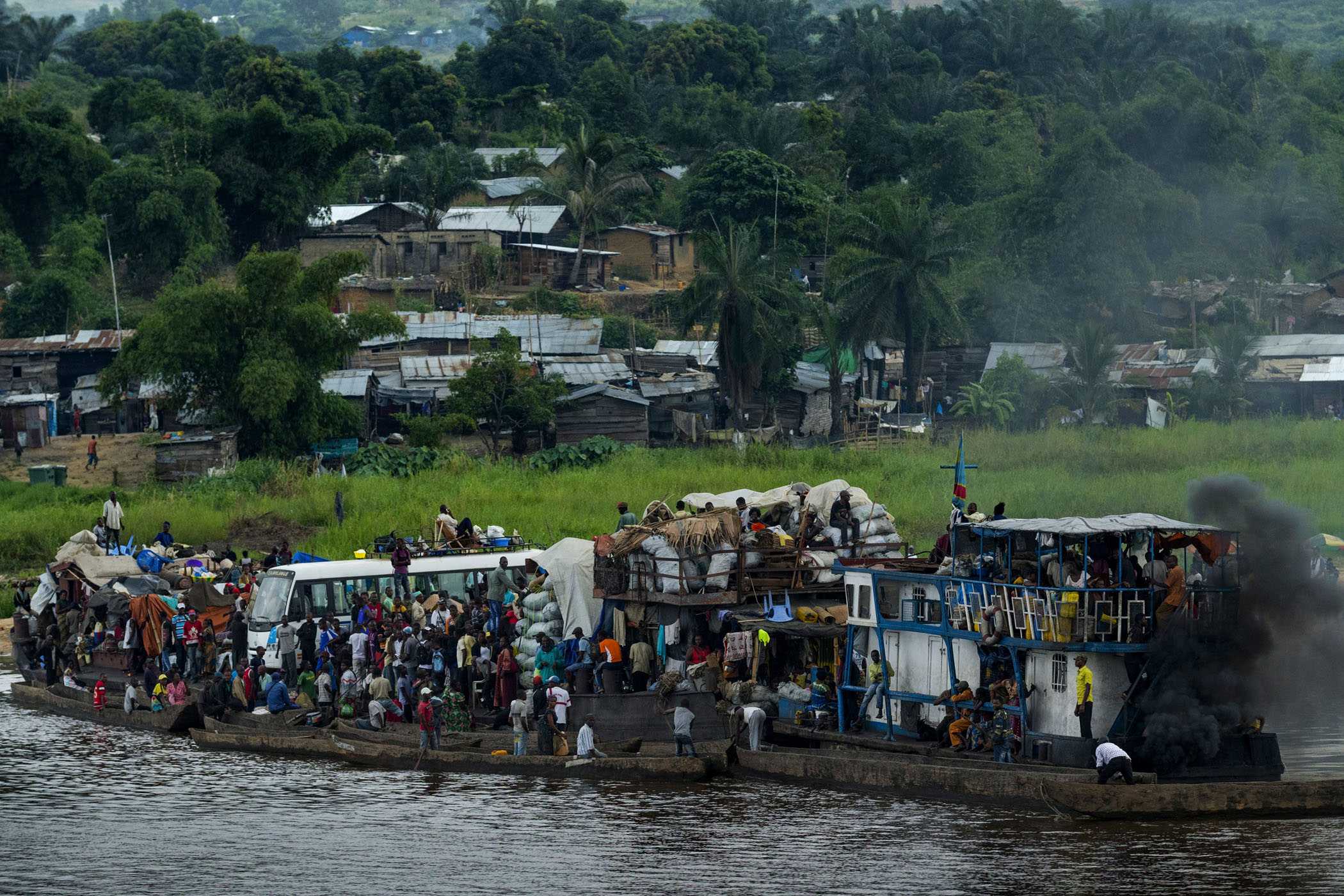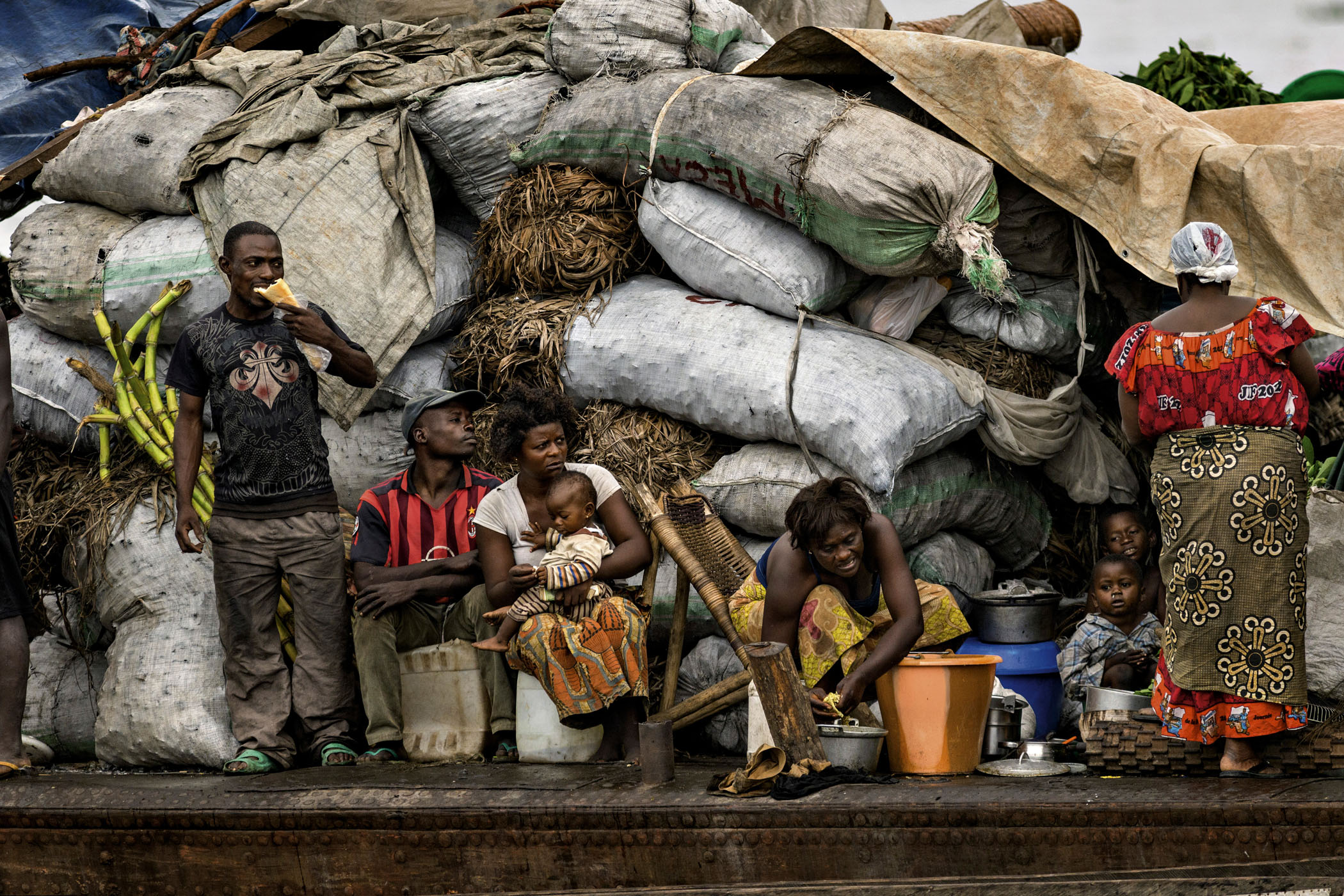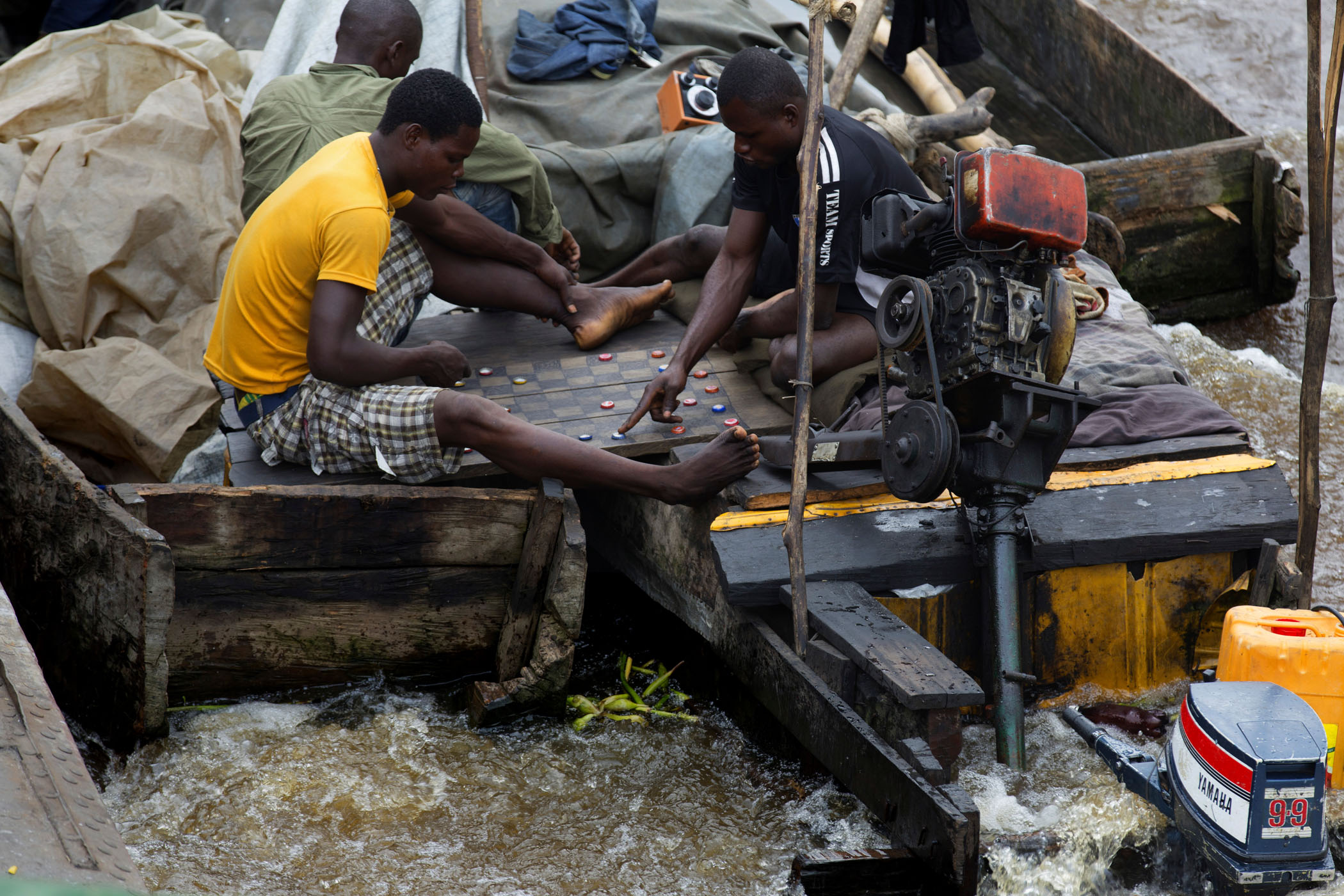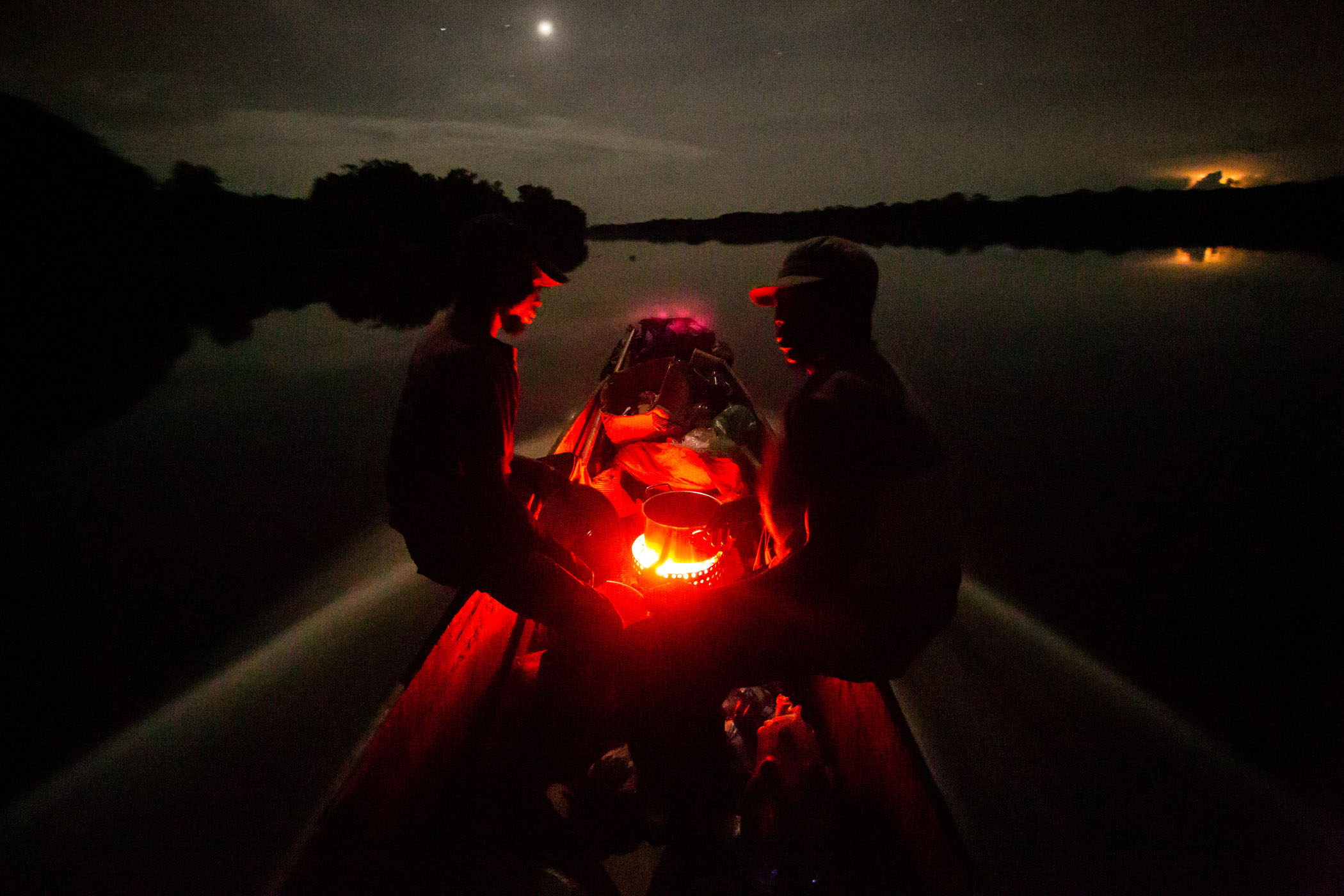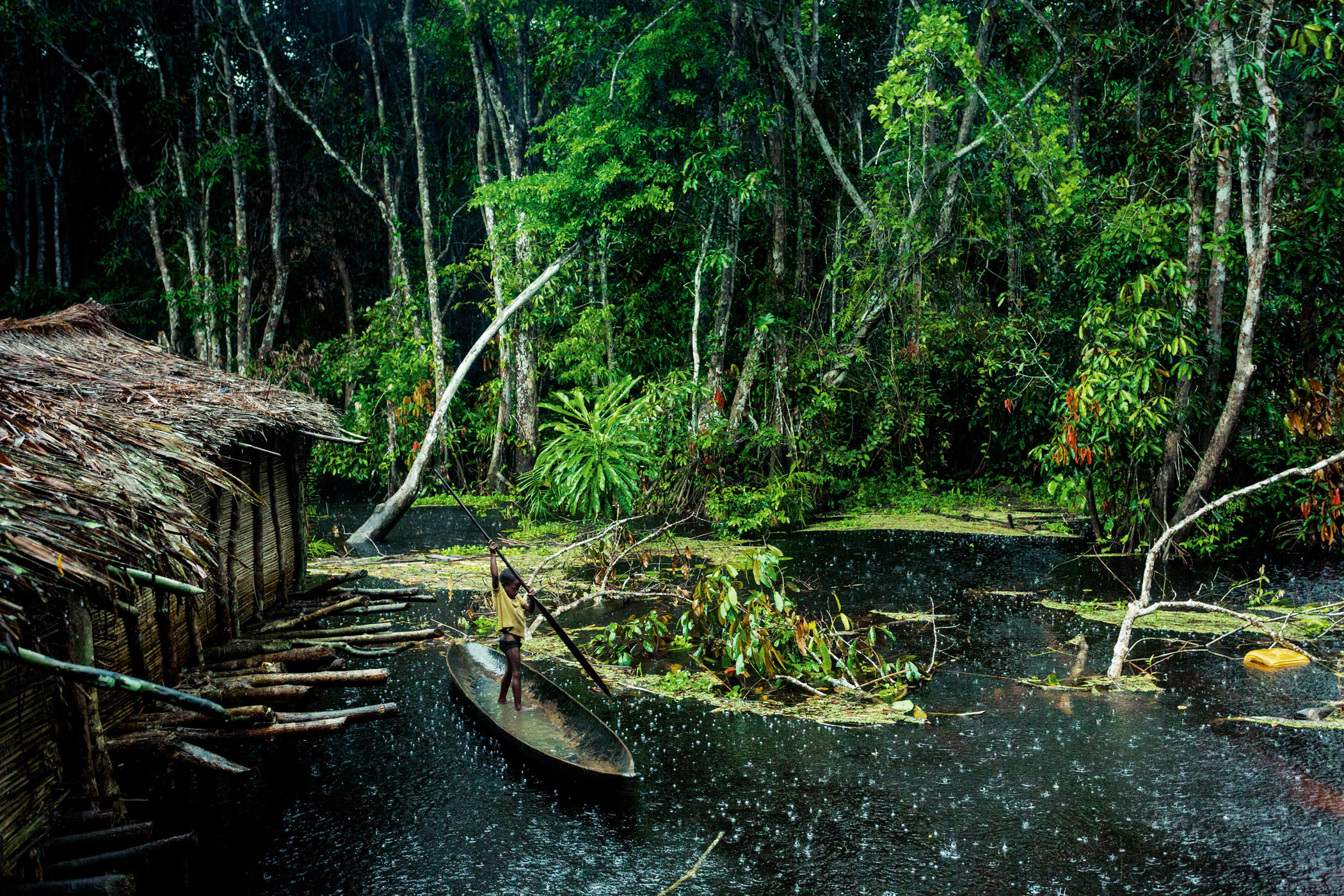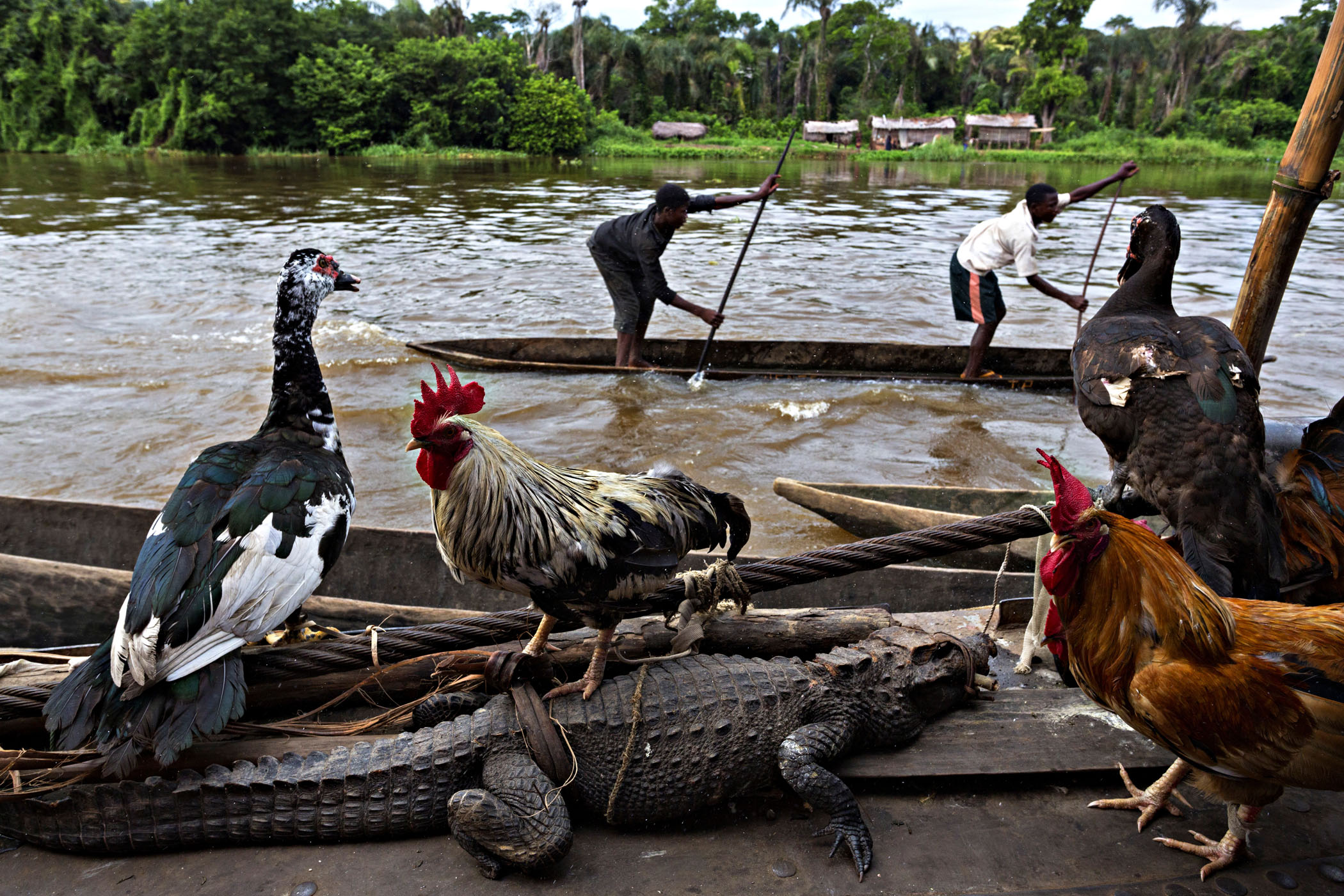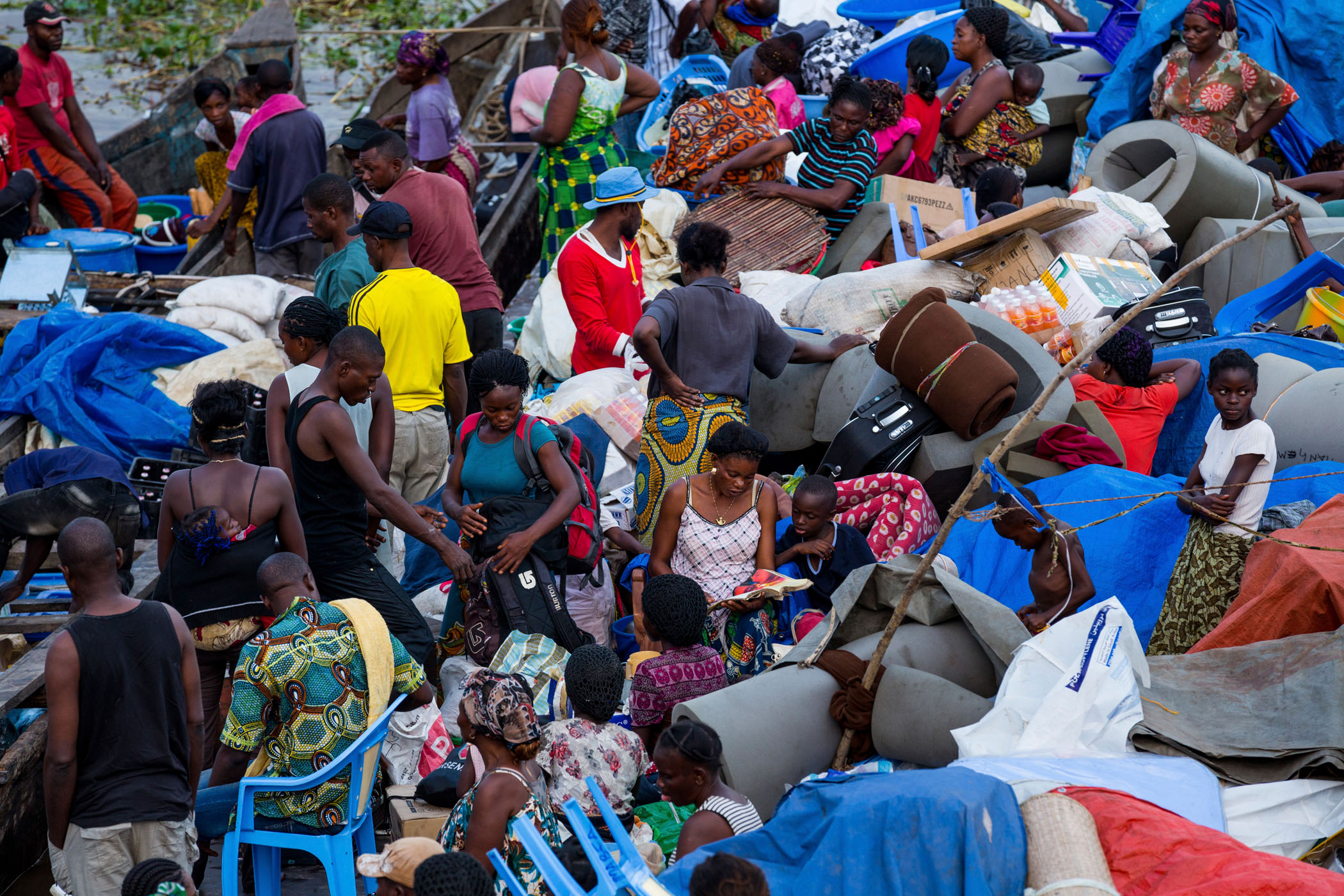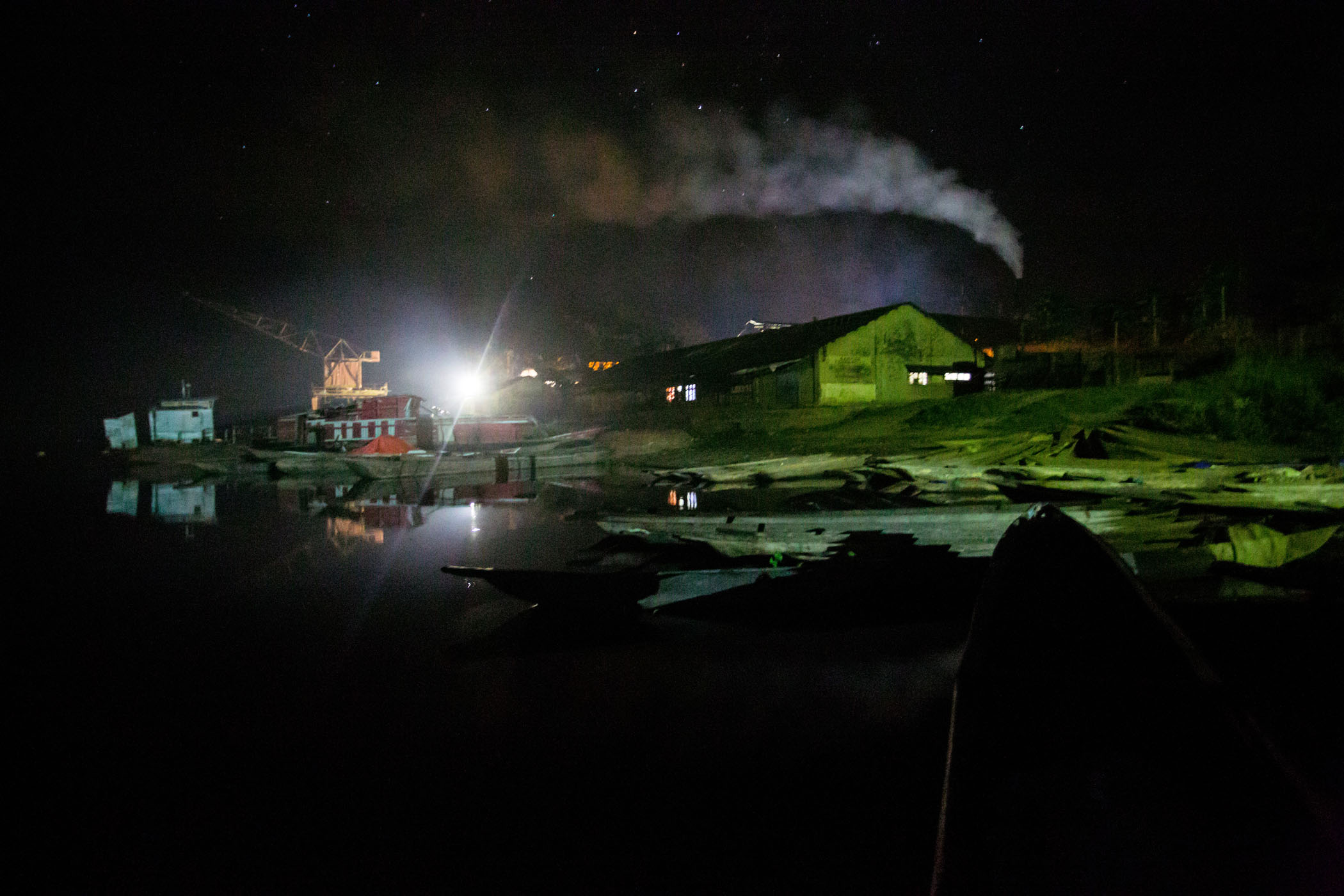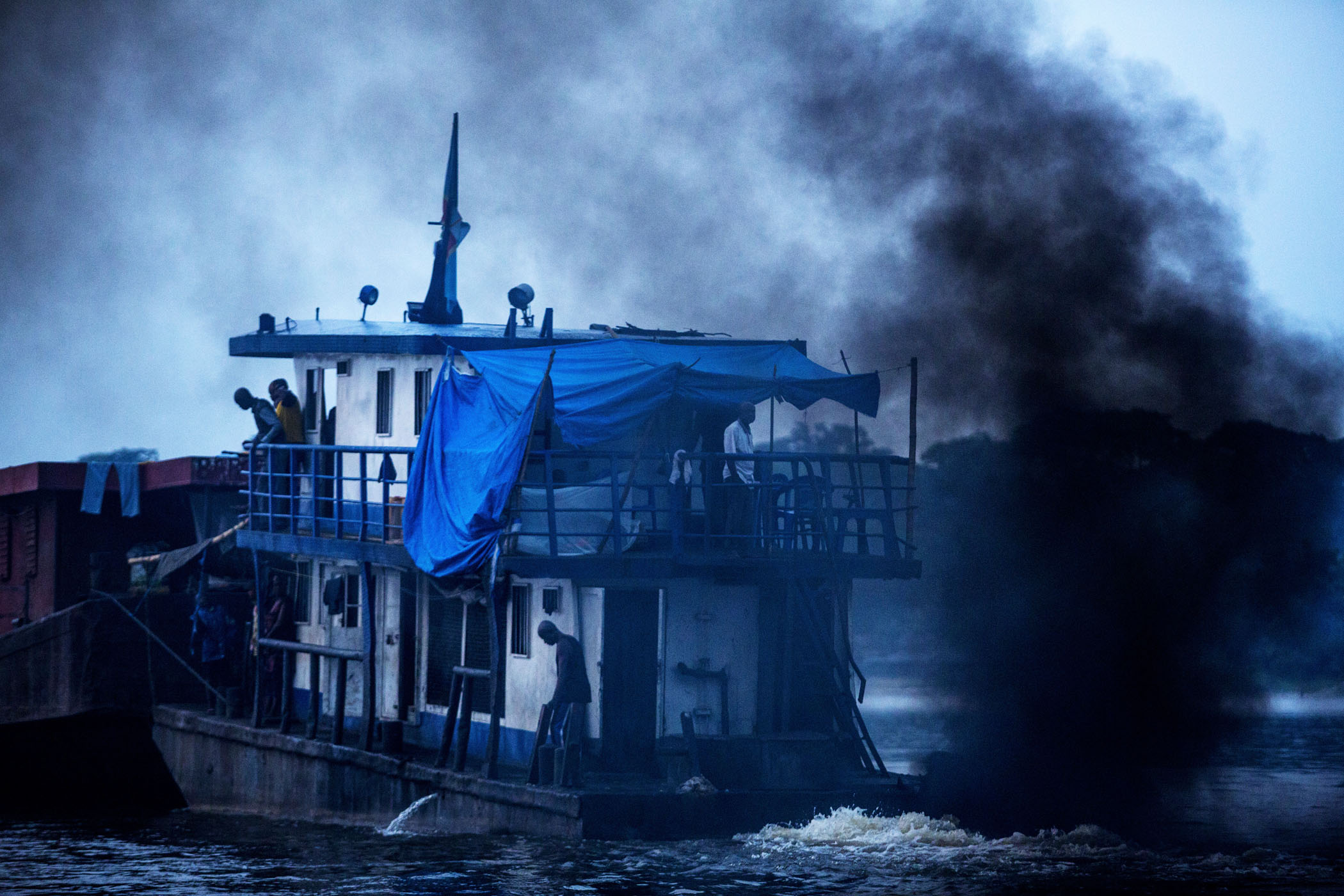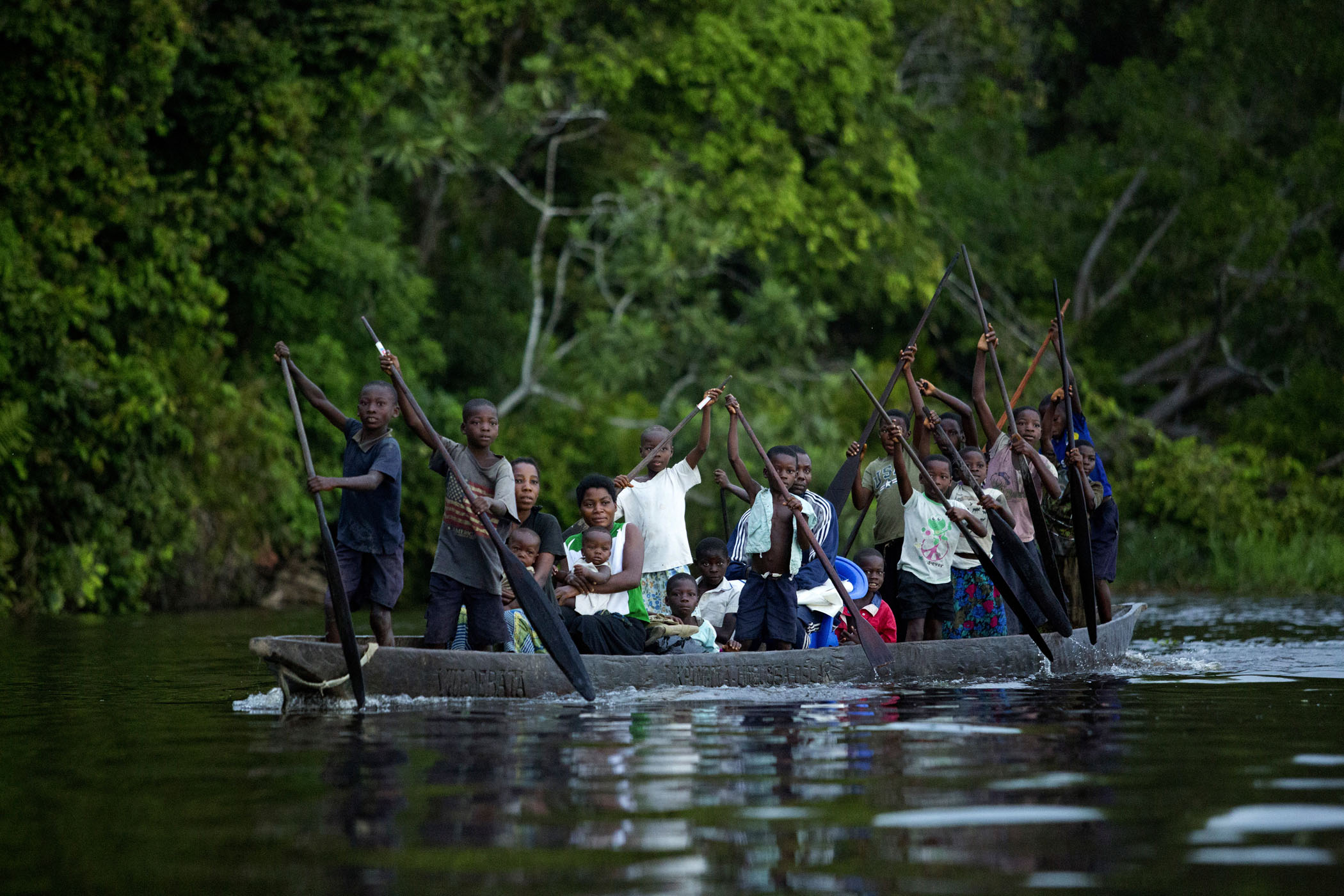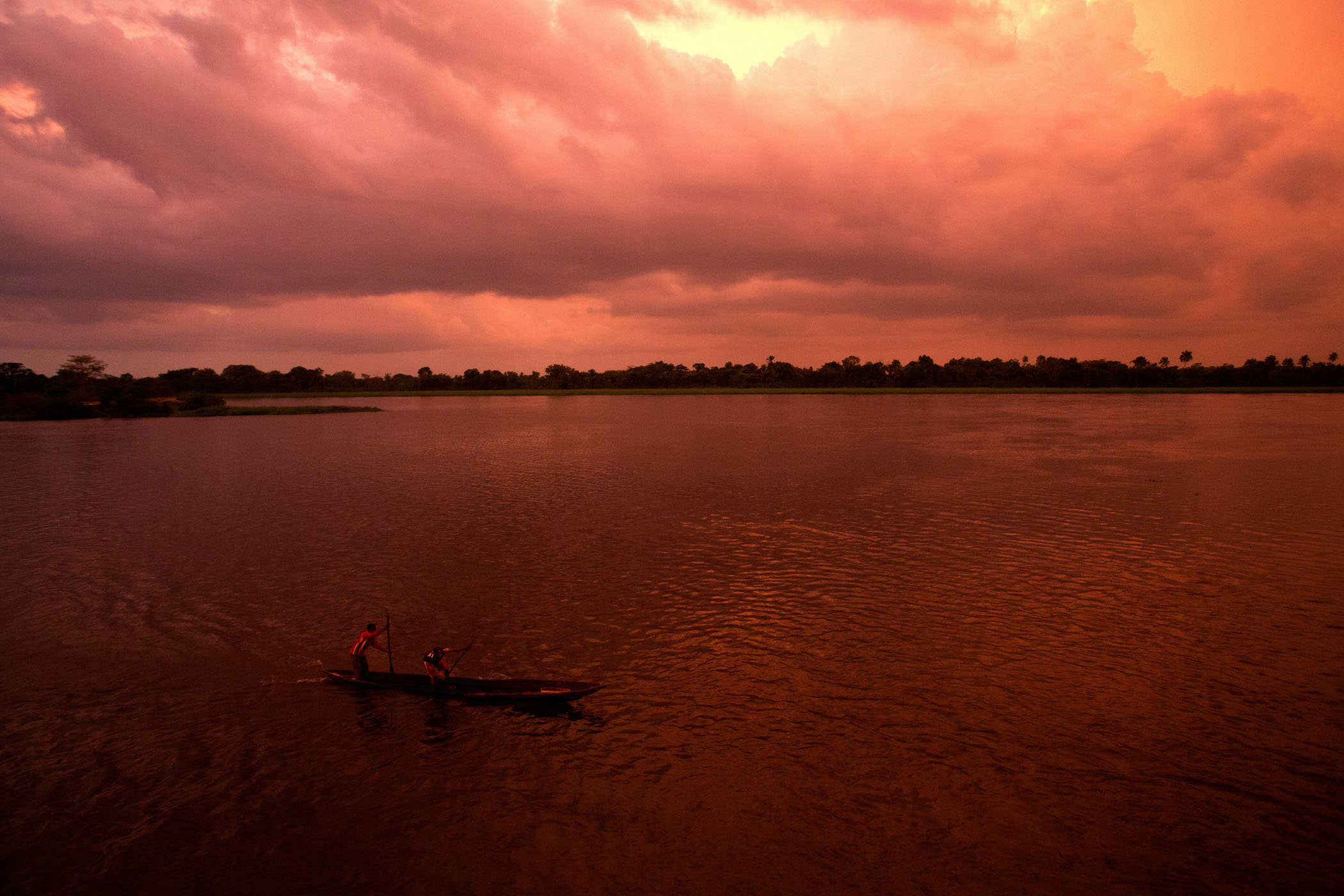The river Congo is navigable for 1700km from Kinshasa to Kisangani. It is the the lifeline of a region with few roads or railways and provides the livelihood for many of the 29 million people living on the banks of the river and its tributaries.
For the majority of the inhabitants of the region the only way to travel is by river. but there are no passenger ferries on the river anymore. To get from one end of the river to the other (at least the navigable section) is a lengthy journey which can take anything from 5 weeks to 7 months on one of the many barges that ply the river carrying goods. The journey is both arduous and dangerous. During the day the heat of the sun reflects off the metal barges where the passengers, mainly women and children, are so tightly packed they almost sit on top of another; at night they are battered by ferocious storms.
One night in the darkness of the forest we were surprised by one of these storms, or more accurately a hurricane. The violence of the rain filled our pirogue in minutes. The creeking of the huge trees and the waves whipped up by the wind made for a terrifying experience. This feeling of total vulnerability is what the inhabitants of the Congo basin experience on a daily basis. Since 2008, over 6000 people have lost their lives in collisions and drownings on the river or on one of its tributaries.
Traveling on one of these convoys made up of tugs and barges (sometimes as many as 10 barges
and 3 tugs create a floating platform over 450 metres long) is like taking the pulse of the Congo. Throughout this journey the barges are transformed into mobile markets with the most unlikely exchanges taking place; dried fish for medicine; crocodiles for trousers, shirts, underwear or a radio; pigs for cheap perfume; pineapples for salt and giant grubs for sugar. As you approach each settlement, dozens of pirogues loaded with goods wait until the barges approach for the traders to leap onto them and start frantically selling.
Maluku, 80 km (50 miles) from Kinshasa, is a busy city with a number of private port facilities. To avoid administrative formalities, vessels take passengers unofficially. Most of the boats on the river are in poor condition and overloaded; the engines often break down, causing numerous accidents with boats swept along by the current, particularly during storms.
For the majority of the inhabitants of the region the only way to travel is by river. but there are no passenger ferries on the river anymore. To get from one end of the river to the other (at least the navigable section) is a lengthy journey which can take anything from 5 weeks to 7 months on one of the many barges that ply the river carrying goods.
The journey is both arduous and dangerous. During the day the heat of the sun reflects off the metal barges where the passengers, mainly women and children, are so tightly packed they almost sit on top of another; at night they are battered by ferocious storms.
From Mbandaka to Lisala. The convoy of ten barges and two tugs is around 400 meters [1 300 ft.] long.
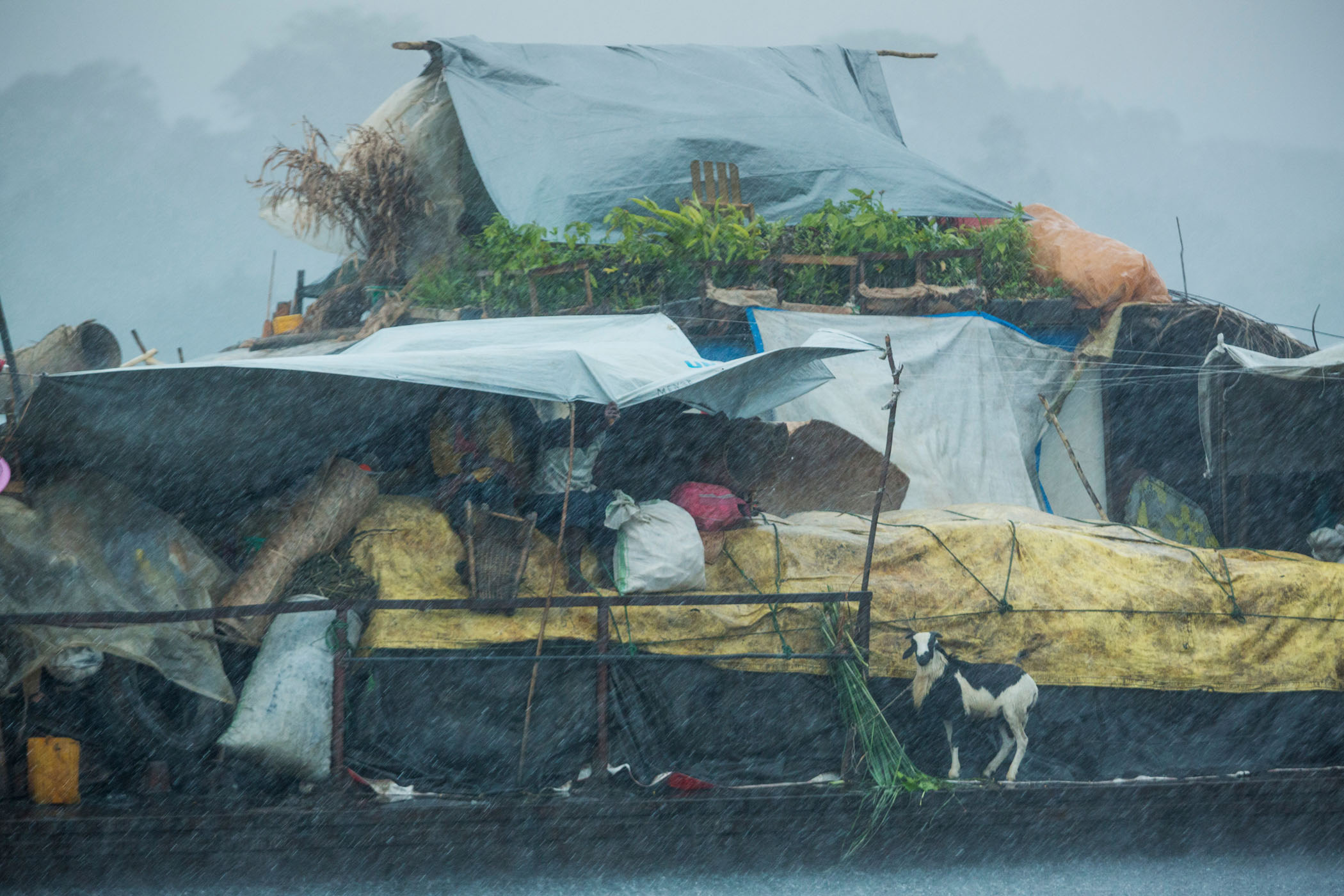
People and animals shelter during a heavy rain storm soaking a vessel on the Mongala River, a tributary of the Congo
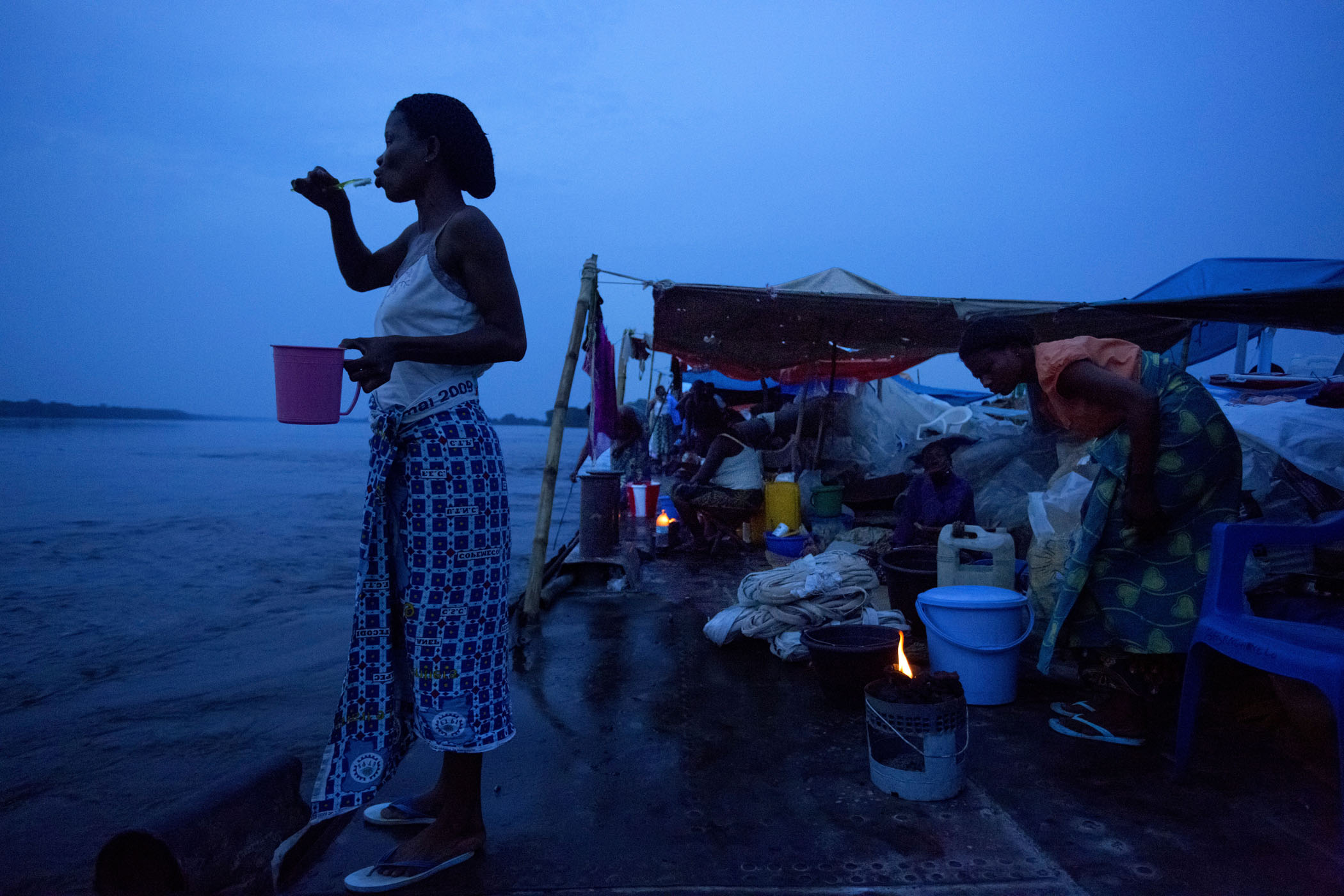
A woman brushes her teeth in the dawn light on the Congo River between Mbandaka and Lisala. On board the vessel, operated by JCM Services (Jesus-Christ Merveilleux Services).
People playing draughts on board a vessel travelling on the River Congo.
Two men in a pirogue (canoe) on the River Congo, prepare a meal at the front of the boat.
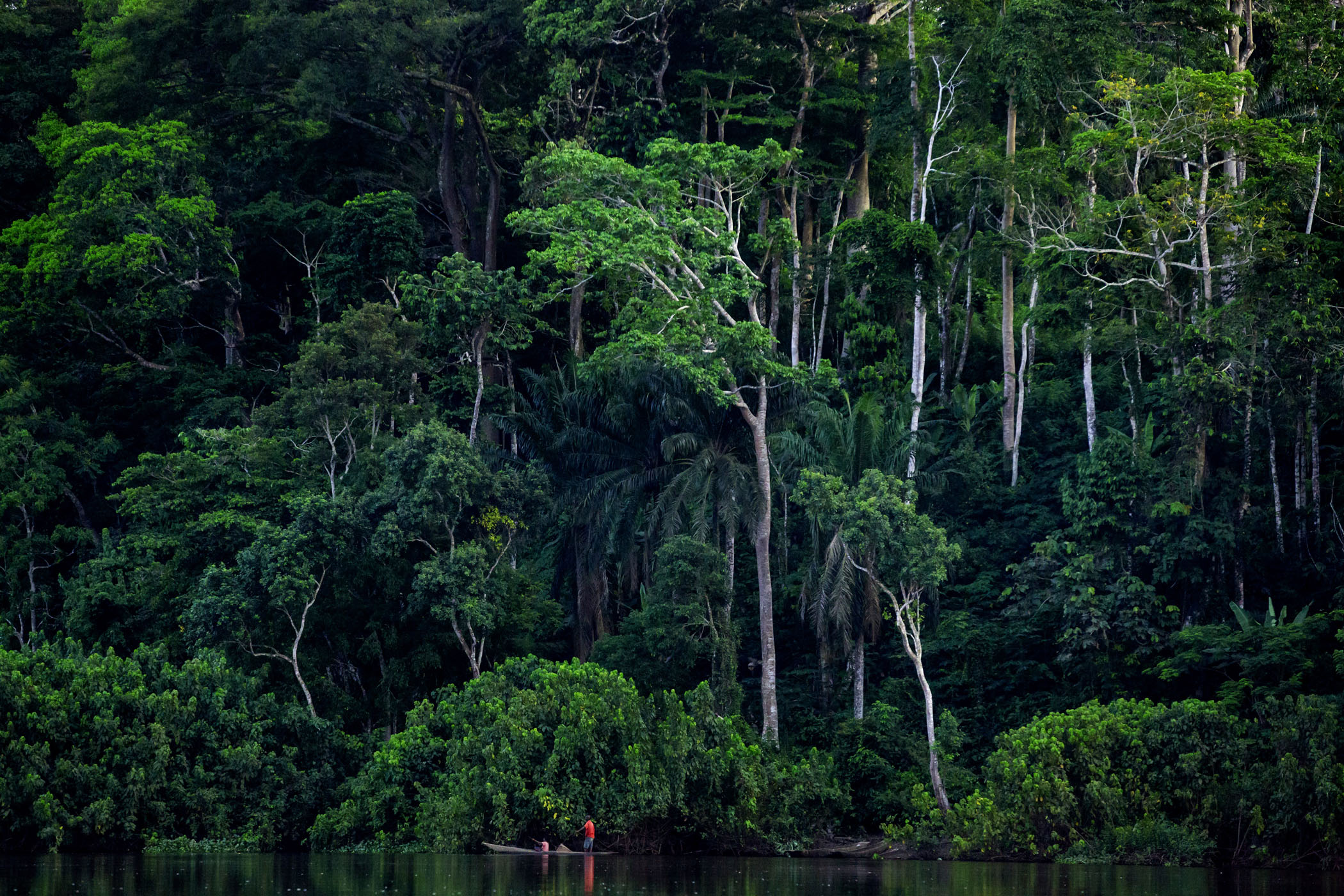
Rainforest growing beside the River Congo dwarves a pirogue sailing near the bank.
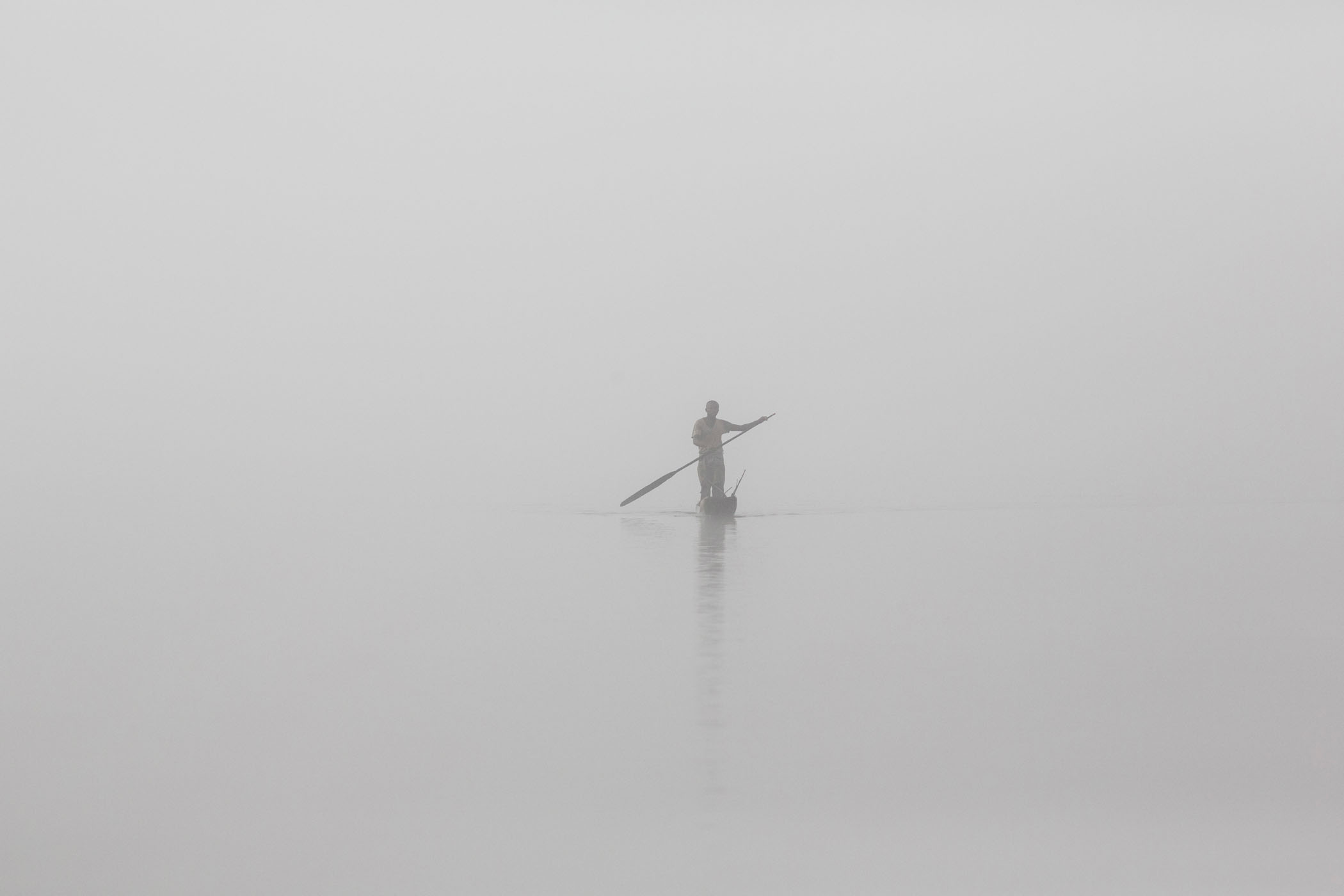
A man paddling a pirogue appears out of the mist on the River Congo near the village of Yalema.
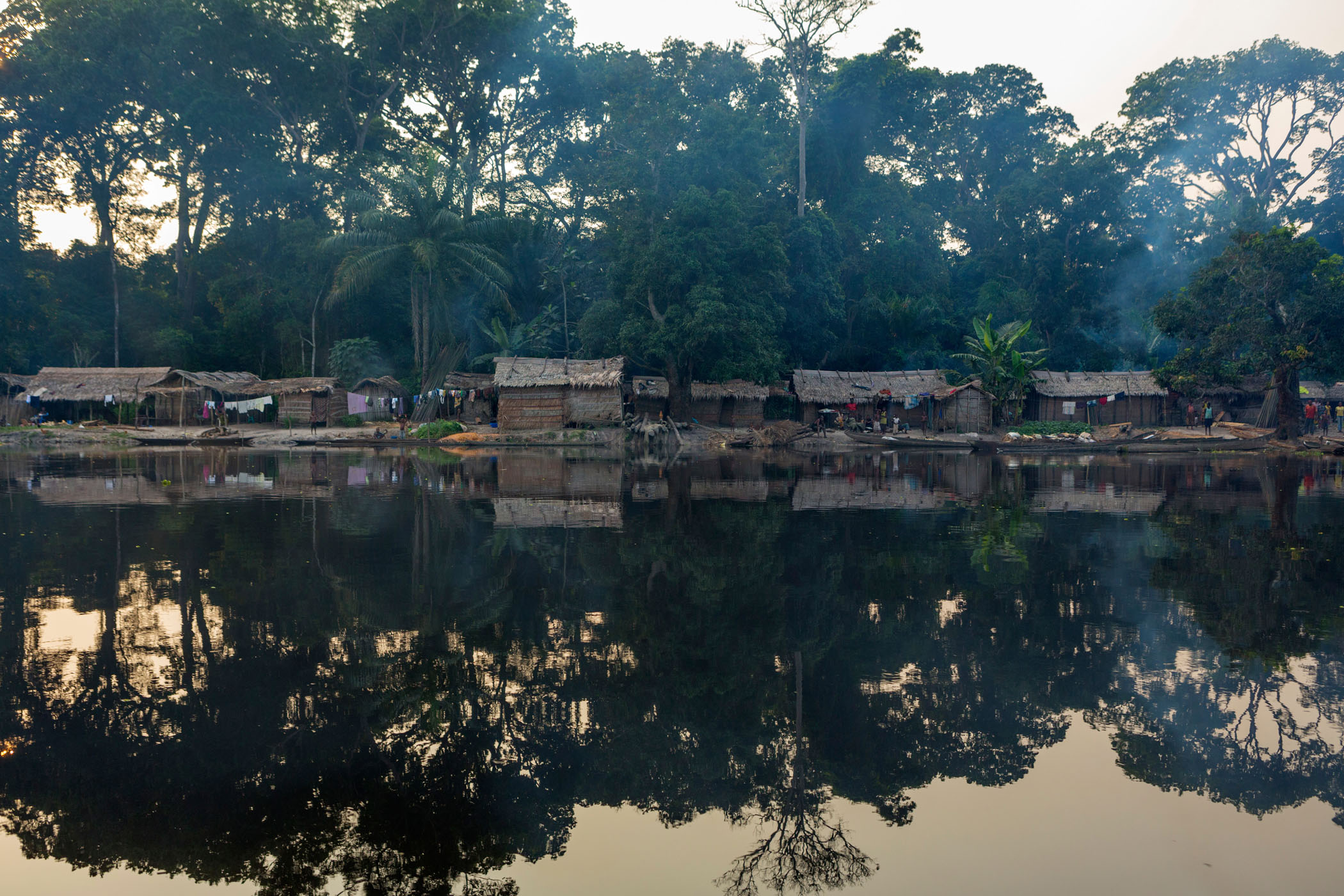
A settlement on the banks of the Mongala River.
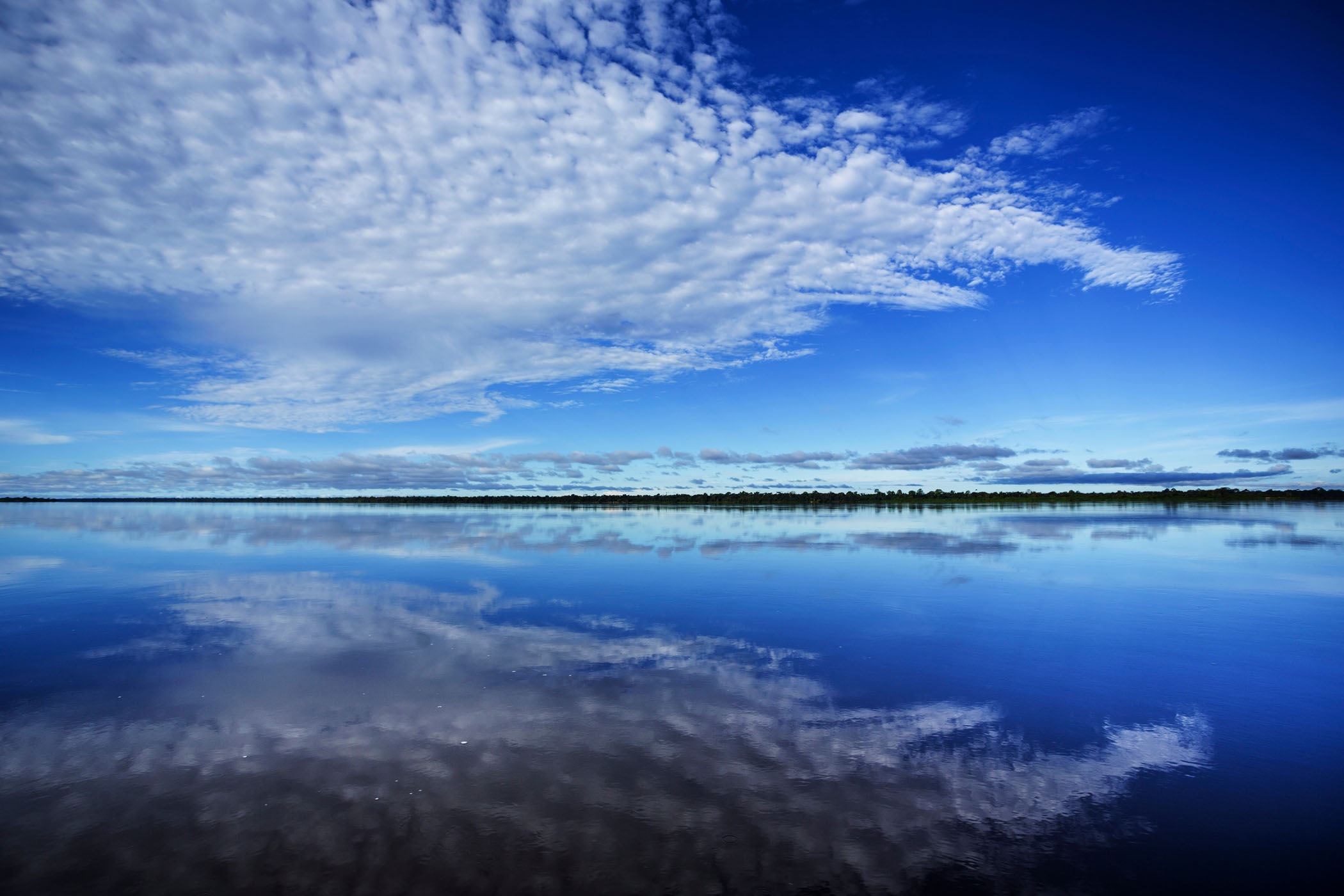
The River Congo's vast expanse of water beneath a vast expanse of sky.
On the banks of the Mongala River, the small settlement set up in the thick forest will be the base for the fishing family for the next three years. It is a precarious set-up that might be swept away or engulfed by the river or forest.
Poultry and a crocodile being sold by people on board a vessel operated by JCM Services travelling on the River Congo. The crocodile was being offered for about GBP 19.50.
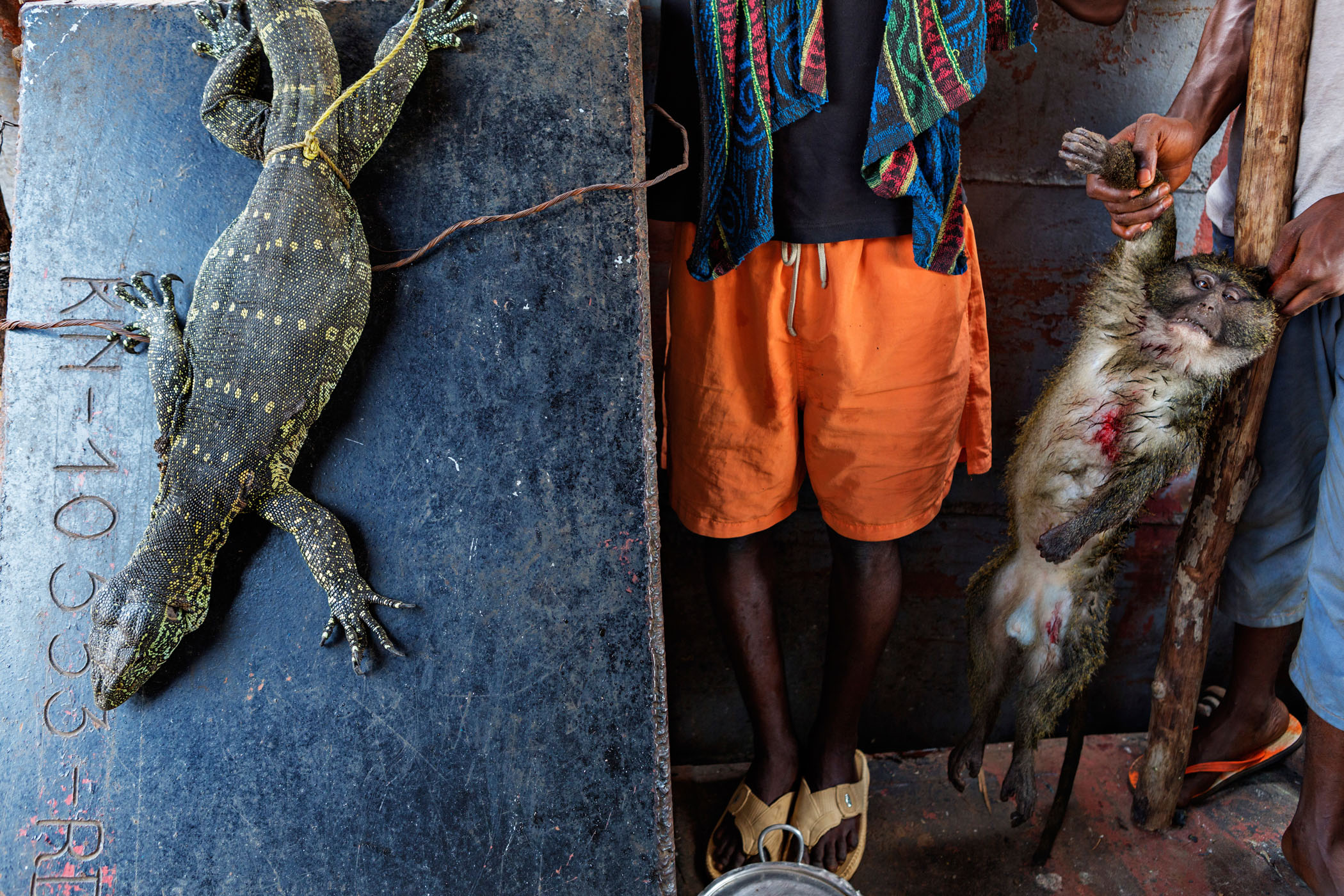
People selling bush meat on board a vessel operated by JCM Services travelling on the River Congo. The villagers from Makanza, the village that the vessel is passing, came aboard to sell a monitor lizard and a monkey. The lizard was sold for 10 000 CDF (GBP 4.80) and the monkey 5000 CDF (GBP 2.40).
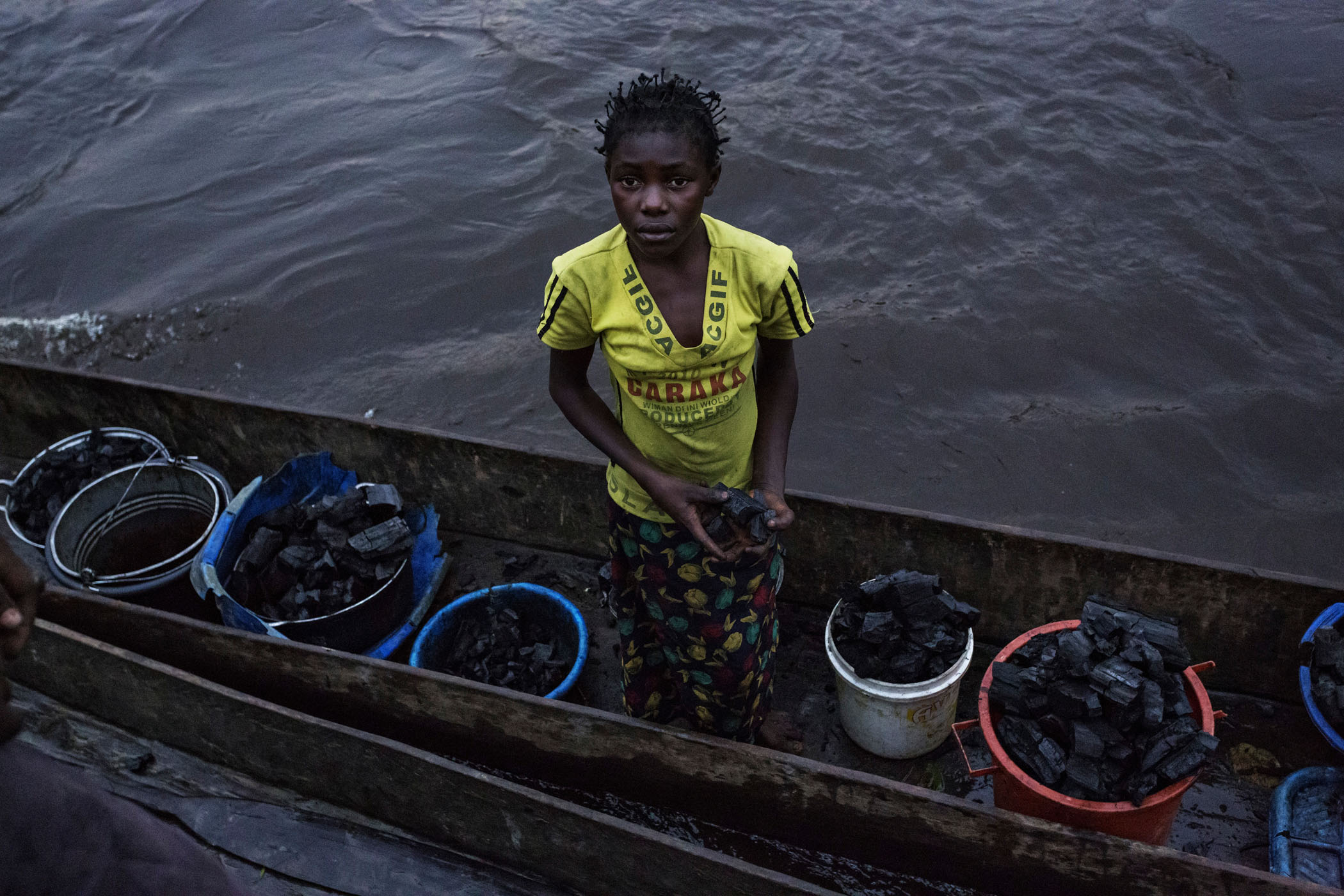
A woman in a pirogue (canoe) moors alongside a vessel operated by JCM Services (Jesus Christ Merveilleux Services) to sell charcoal to the passengers.
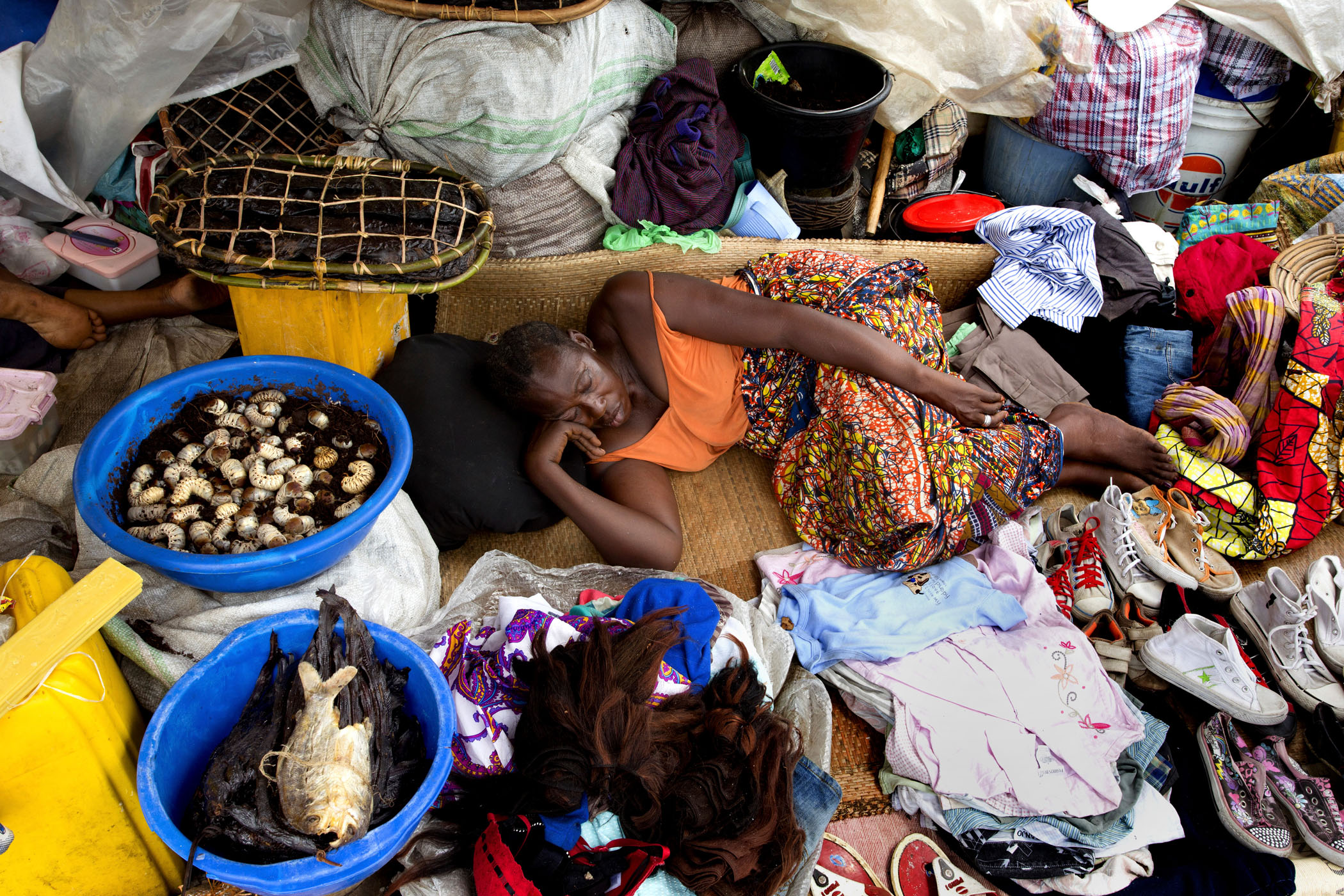
A woman on board a vessel operated by JCM Services travelling on the River Congo is surrounded by products she is selling, including giant grubs, dried fish, wigs, clothes abd shoes.
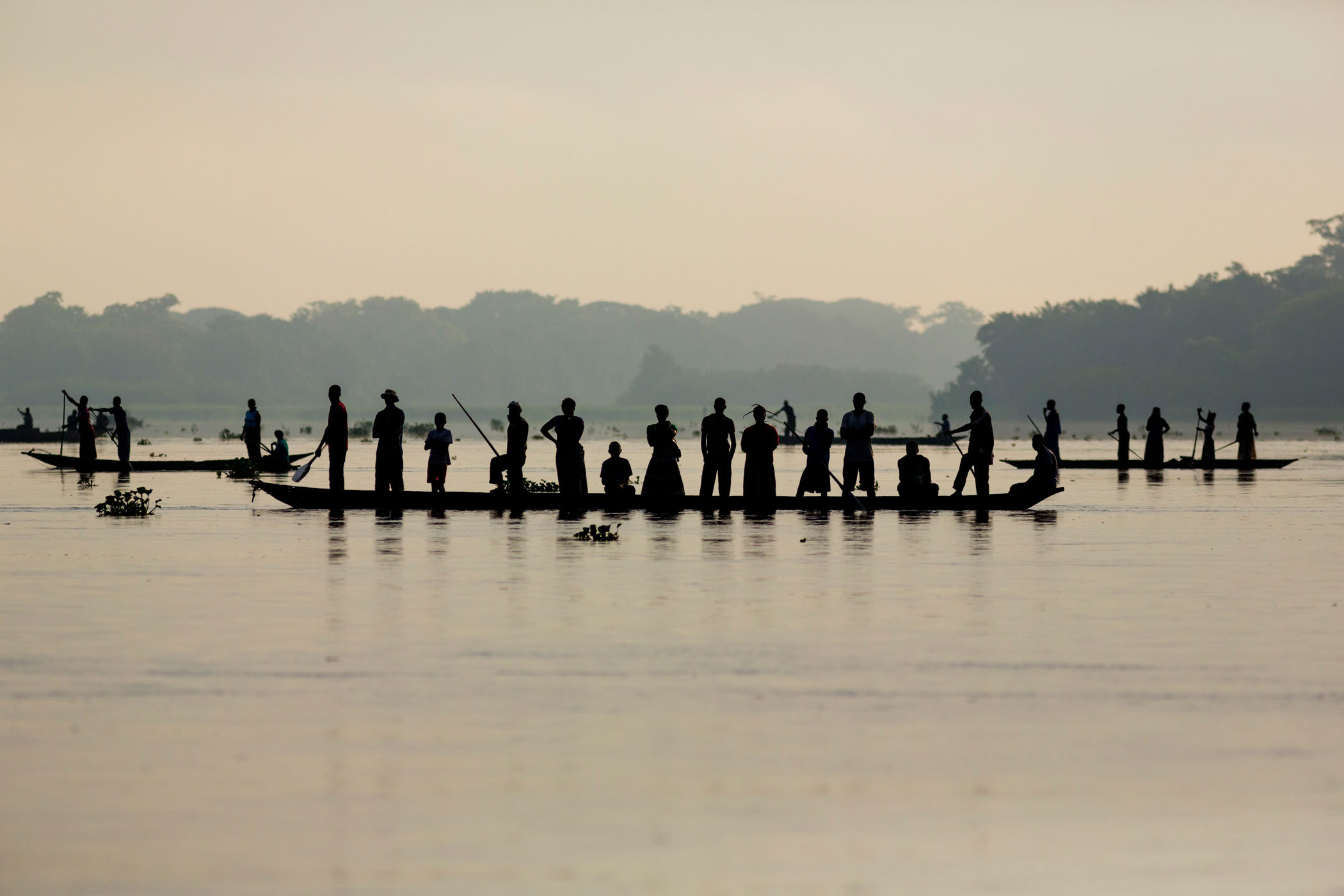
Villagers waiting moor up to a vessel travelling on the River Congo. Each new passing vessel is an opportunity to sell goods and produce from the village and in return they can buy cheap products, mostly made in China, that have flooded the market.
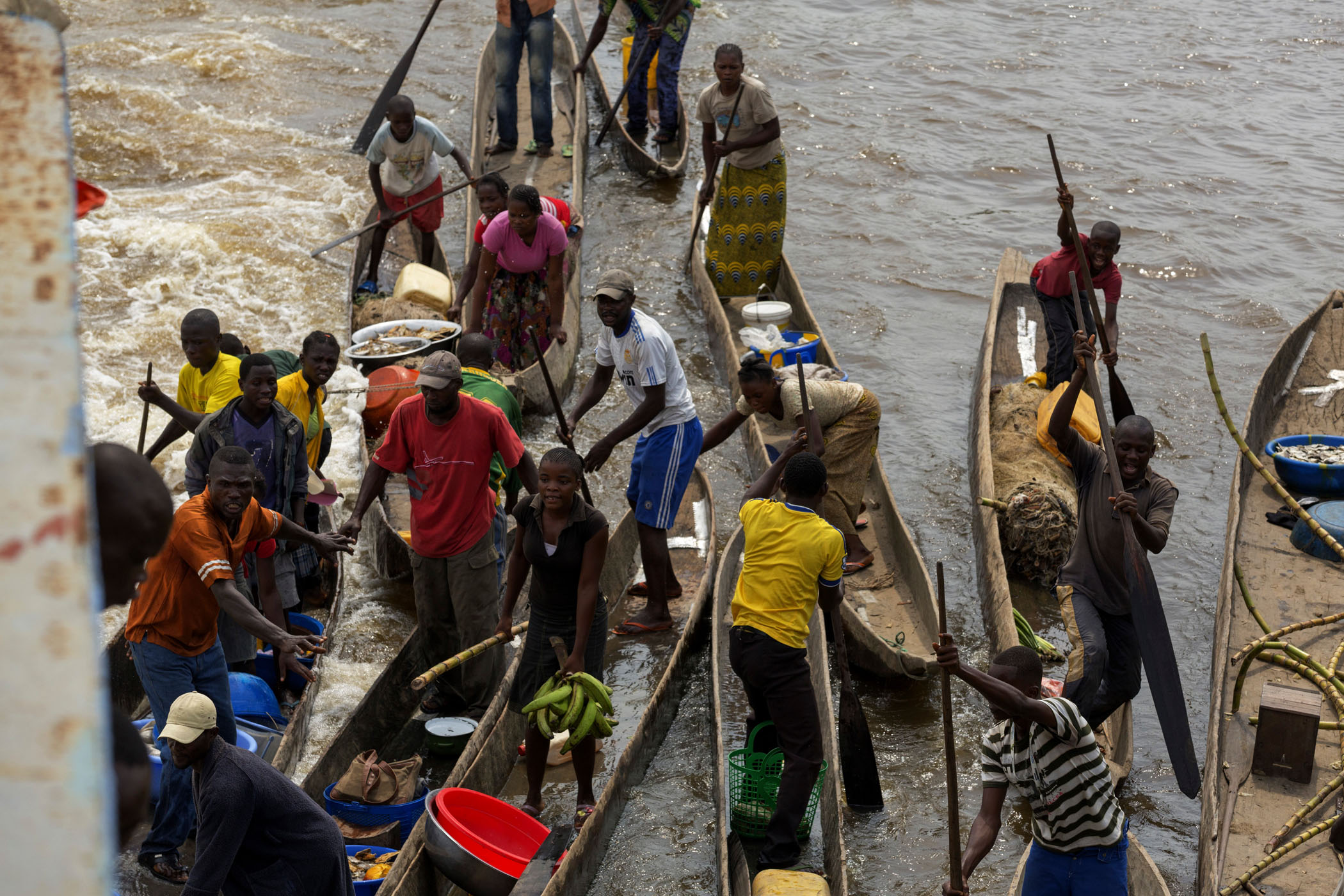
People approach a vessel operated by JCM Services (Jesus Christ Merveilleux Services) travelling on the Congo River in pirogues in order to buy and sell a variety of produce. The ship's crew do not want too many canoes crowding around it and they try to force them away.
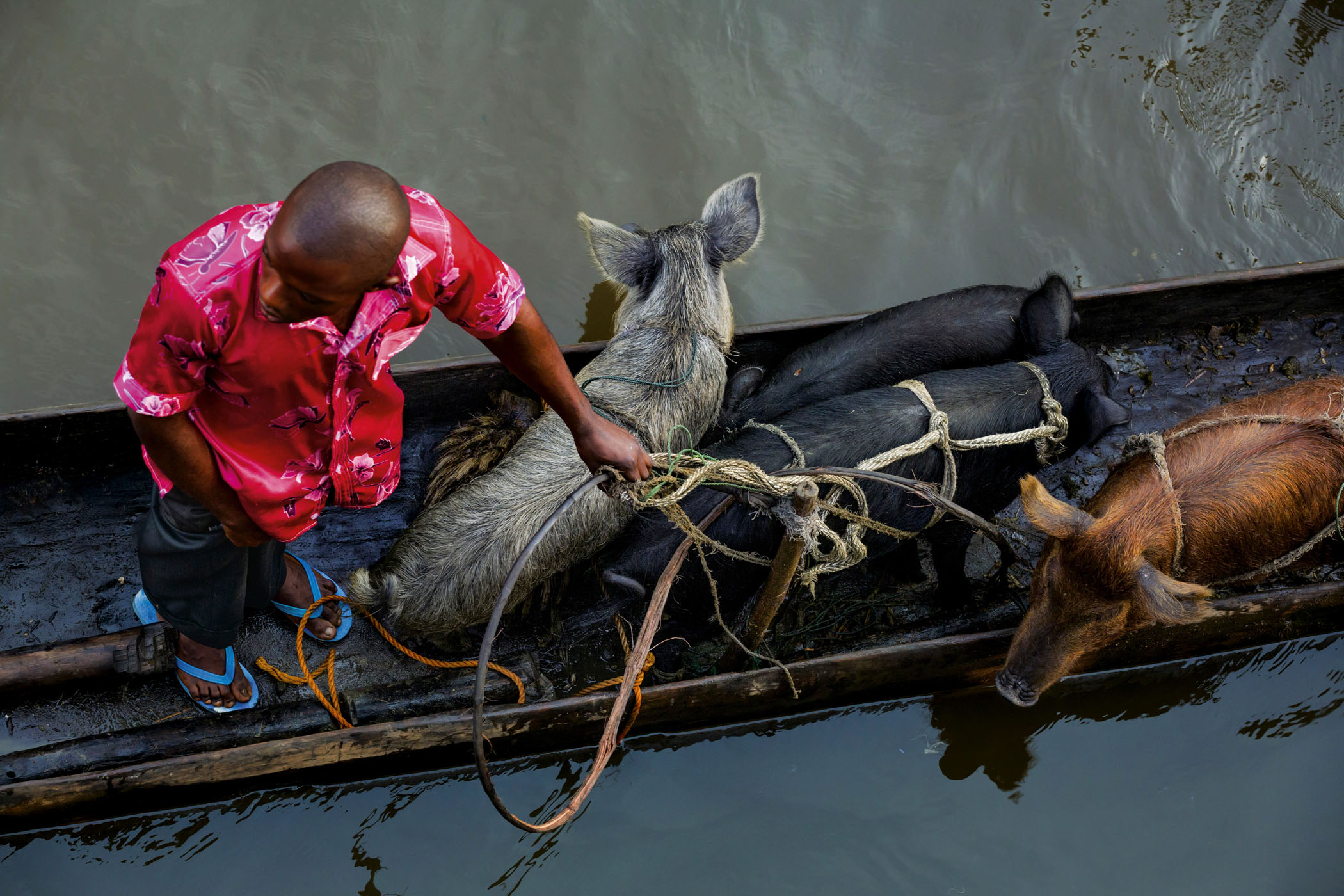
A villager from Makanza, a village on the banks of the River Congo, moors beside a passing vessel to sell to passengers.
A crowded vessel on the River Congo 100 km (60 miles) out from Kinshasa.
A palm oil processing plant on the banks of the River Congo.
The whole economy of the Congo basin is linked to the river: the palm oil plantations and their processing factories located on the banks of the river; the rubber plantations (for a long time in disuse but now regaining their importance with the rise of HIV/Aids and the increasing demand for rubber for condoms) and logging operations exploiting the mahogany and teak in the forest.
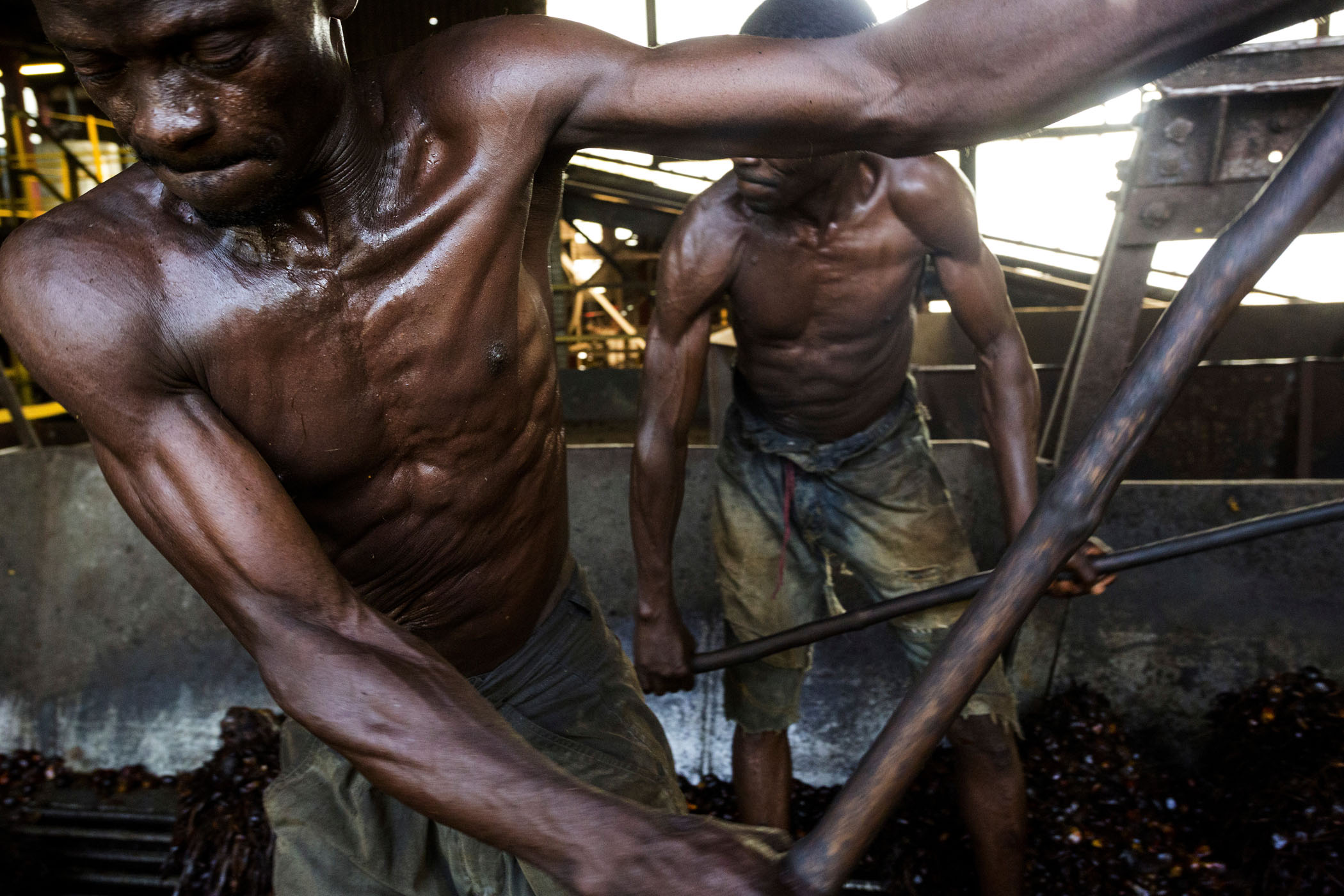
Labourers working in a palm oil factory
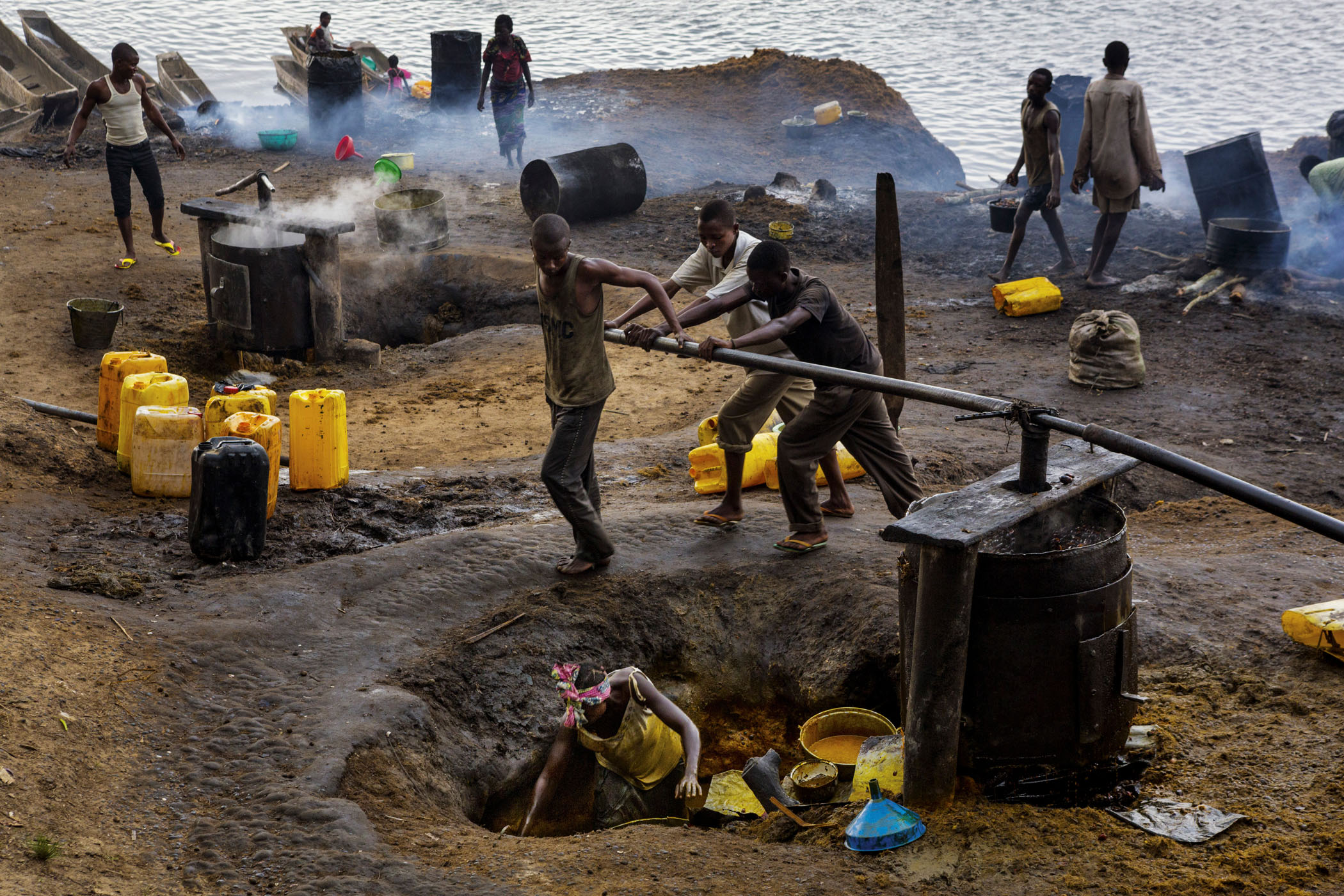
People press palm fruits to manufacture oil using rudimentary tools on the banks of the River Congo. When Pascal arrived by boat the men stopped work to clap and chant: “The European man has come! We will never be hungry again!”
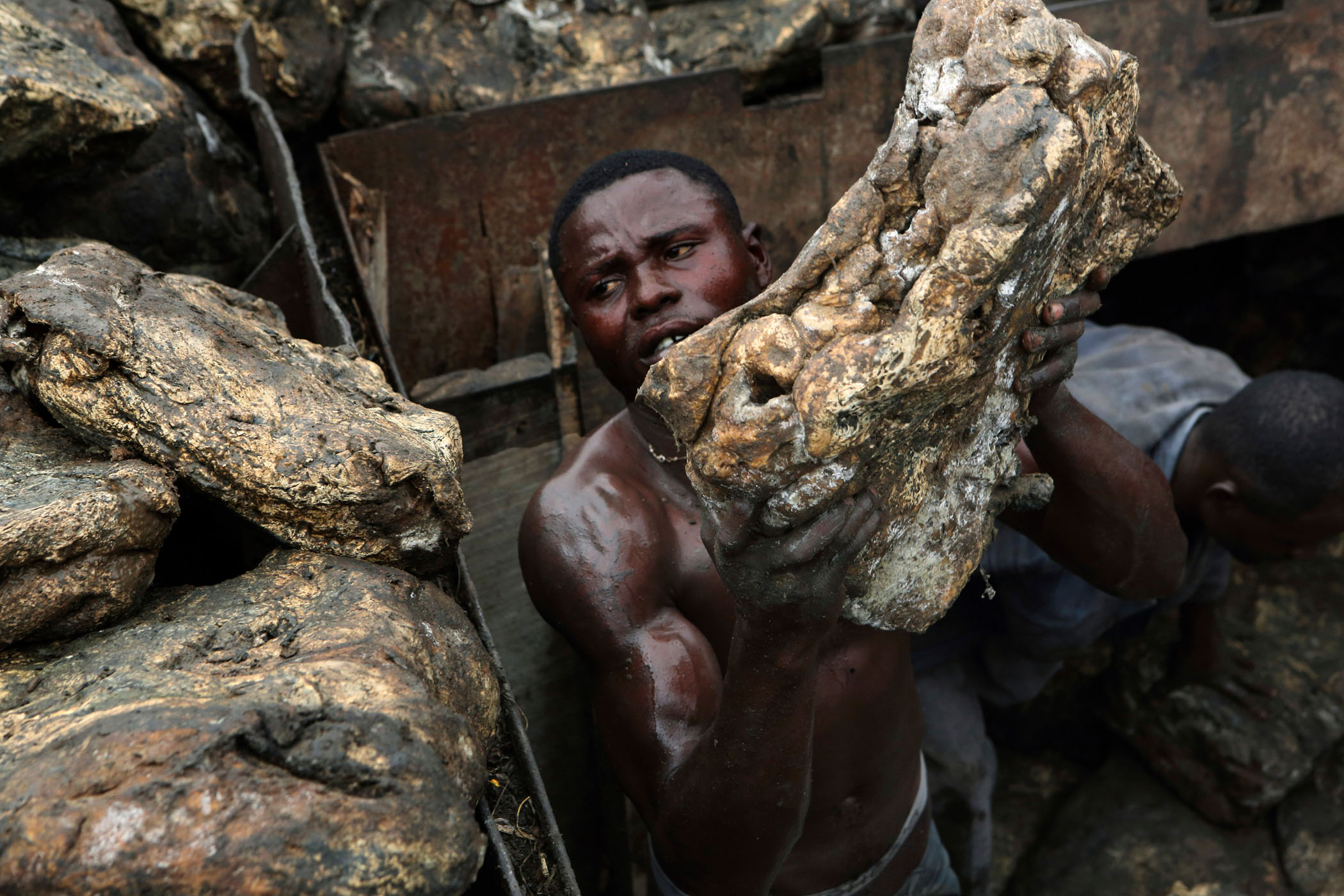
Workers unload rubber from a boat moored in Ondika port.
After five months, and any number of incidents and accidents (running aground, crime on the vessel, the engine breaking down repeatedly, and the captain being arrested for arms dealing), the Kwema Express finally made it to Lokutu. It then sailed for another two months to reach Kisangani, making a total journey of 1 700 km [1 060 miles] from Kinshasa over seven months.
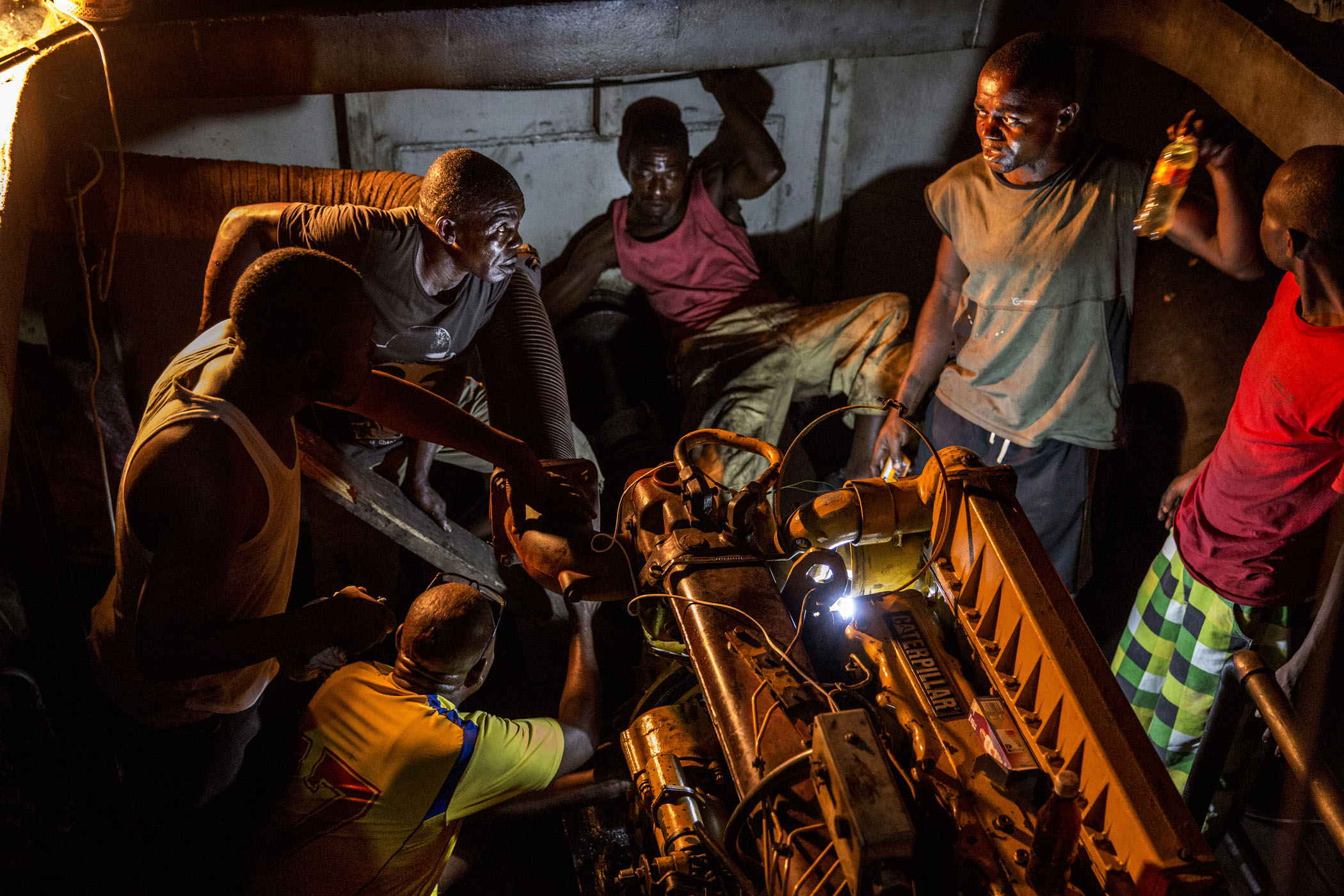
Mechanics working on the gears of a crowded vessel travelling on the River Congo.
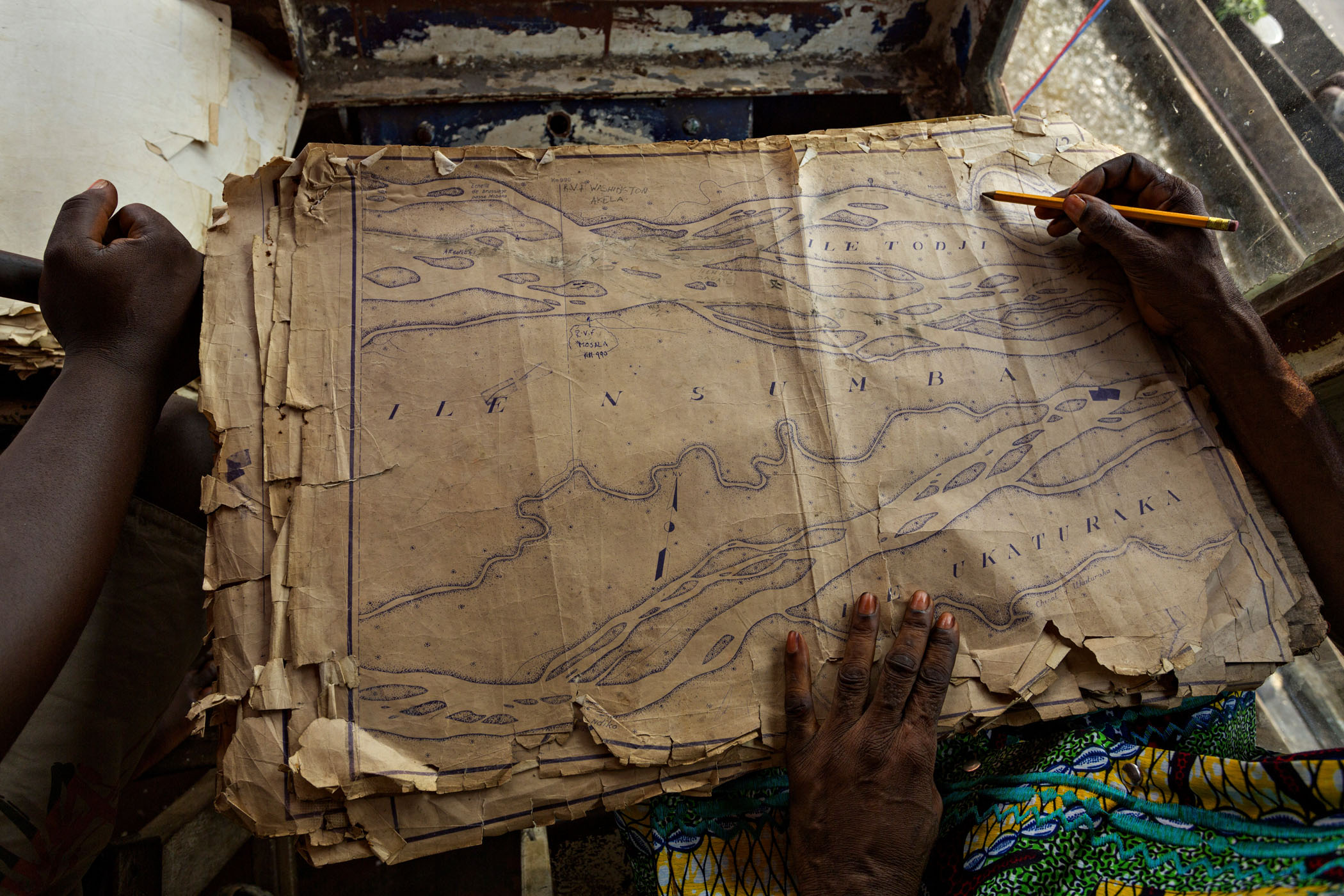
The old map dating from the Belgian colonial-era is still the only map used by boats travelling on the River Congo.
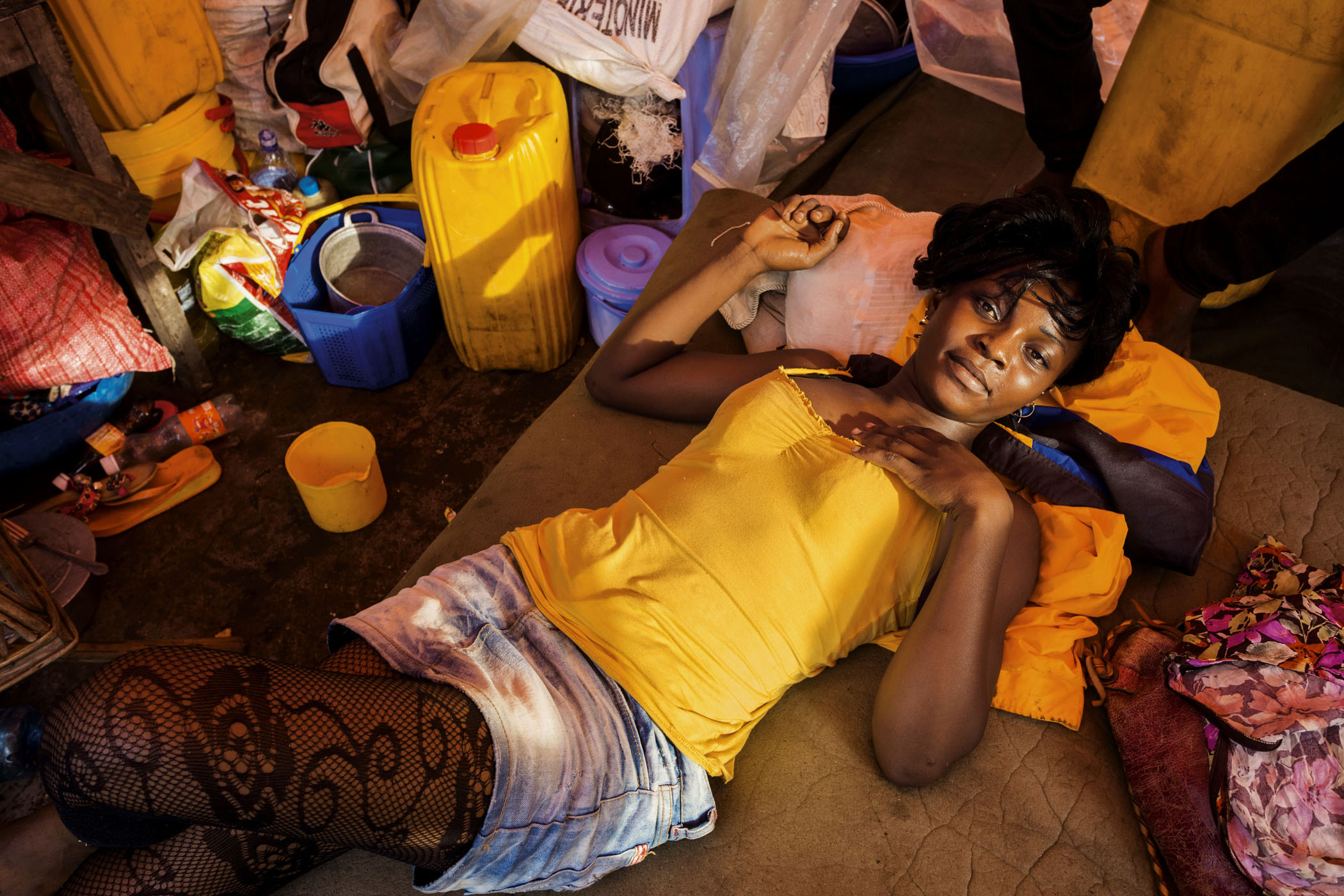
A woman rests on board a vessel operated by JCM Services. This passenger, and many other women, manage to maintain an elegant appearance. It is not easy to afford the long journey. Younger women often seek out a companion to cover their expenses throughout the trip.
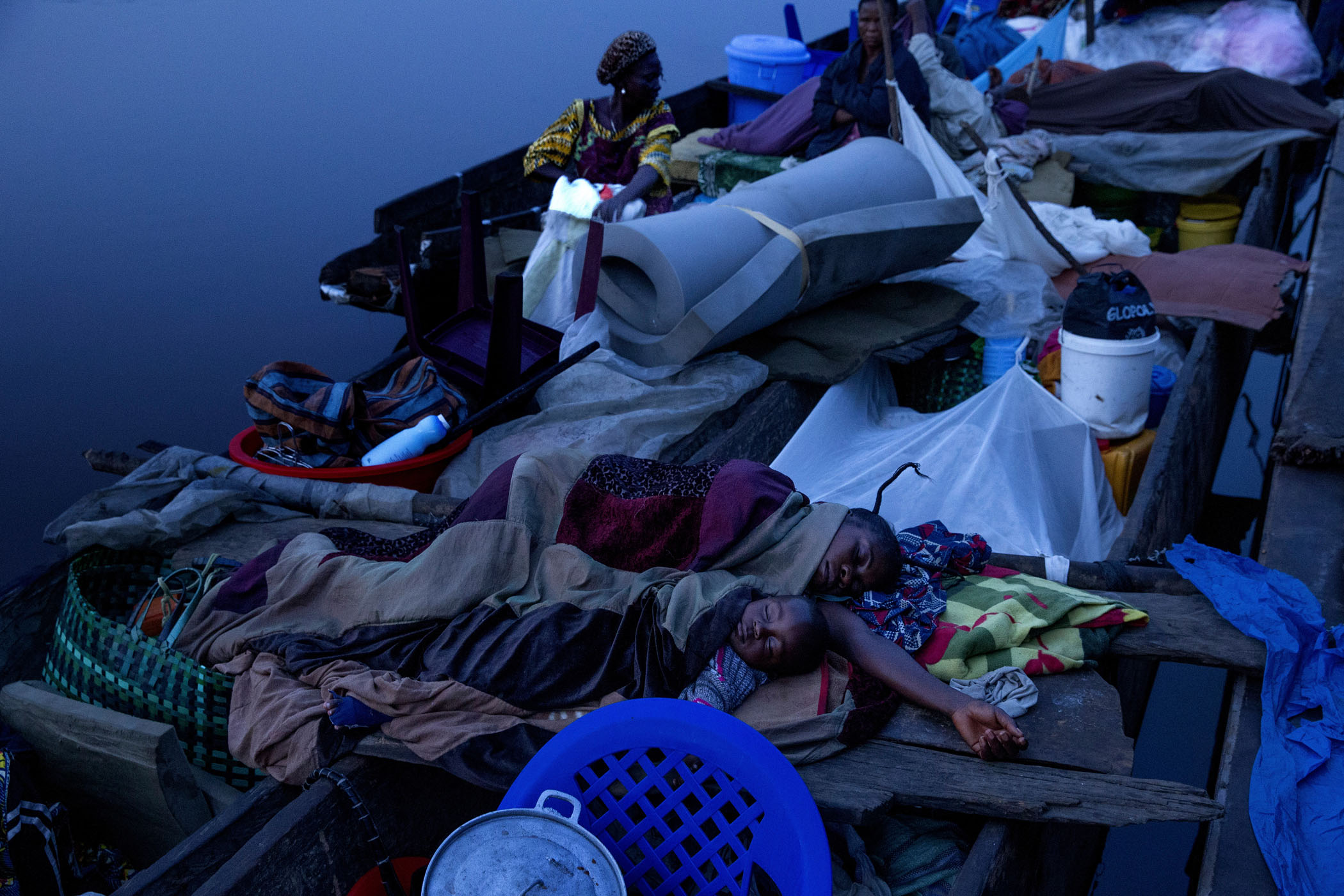
People sleep on board a ship travelling on the River Congo.
A man and his 18 children travelling by pirogue (canoe) on the River Congo to church for a Sunday service.
Dropped into the heart of this environment, human beings can only feel insignificant in a world in which the equilibrium is delicately balanced by the horizontal line of the river. (Pascal Maître)
Two men paddle a pirogue (canoe) towards a boat travelling on the River Congo.

